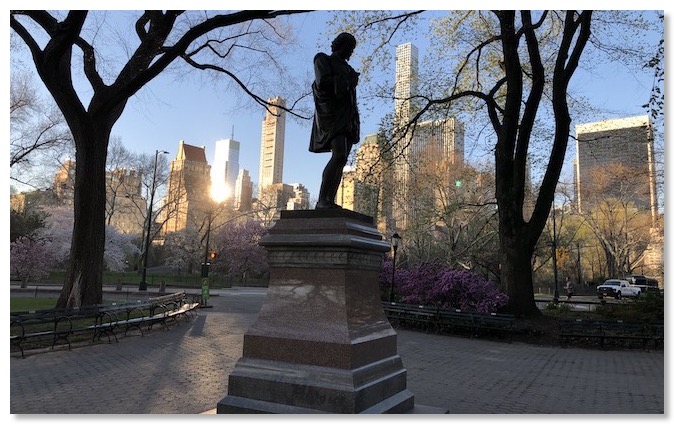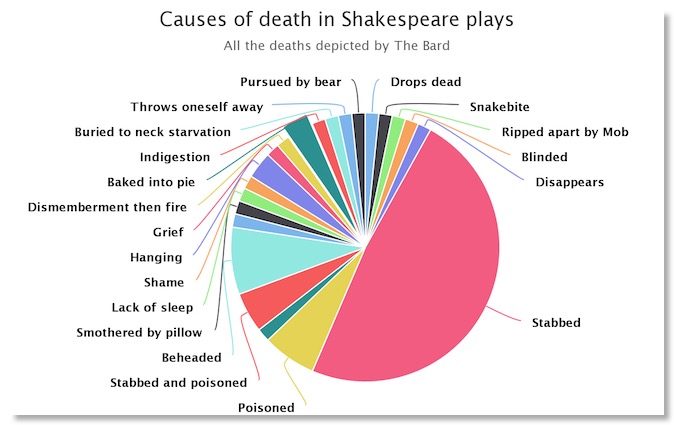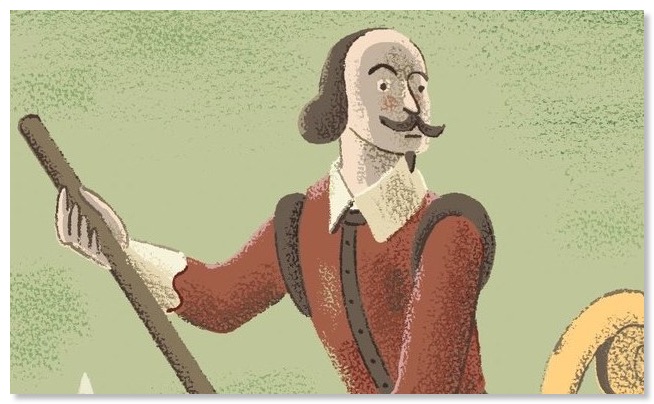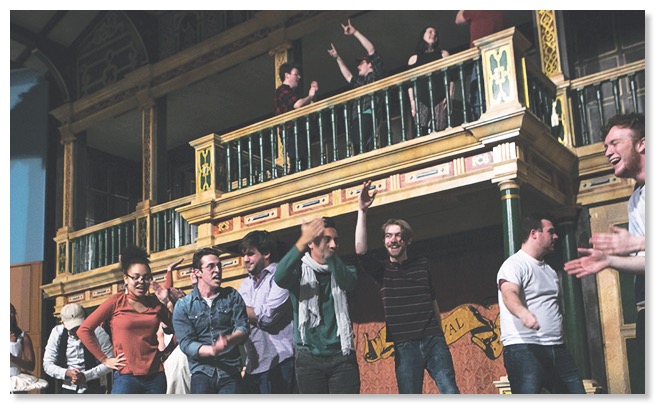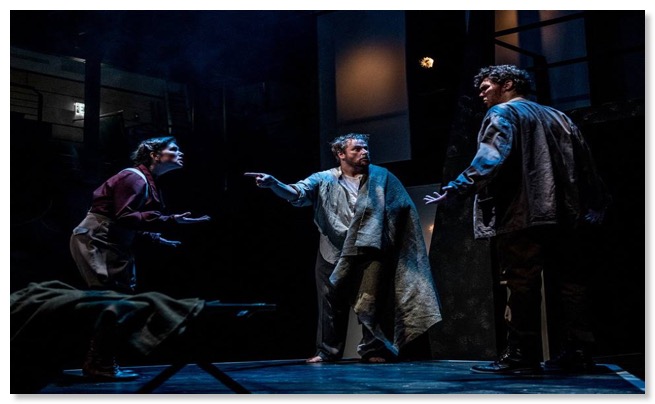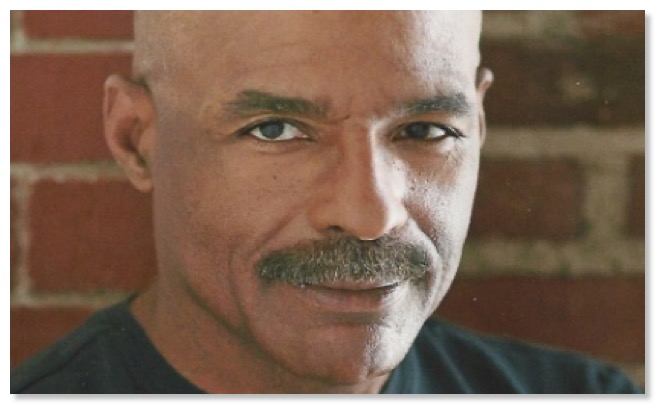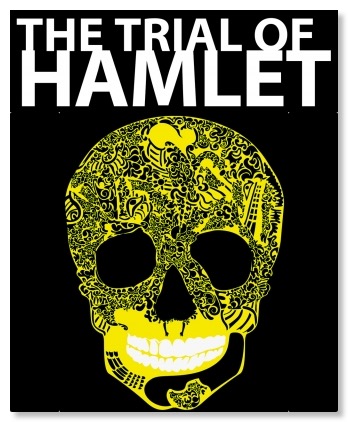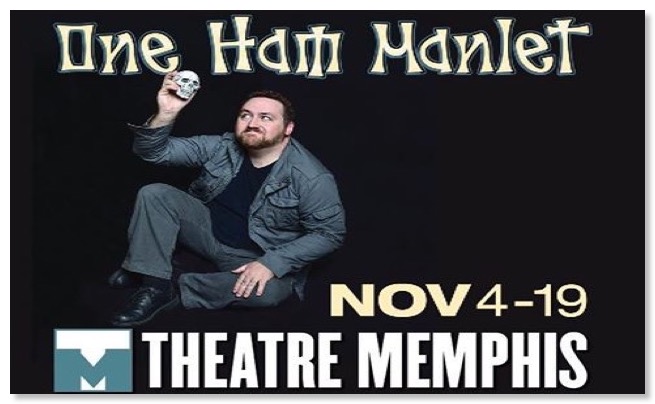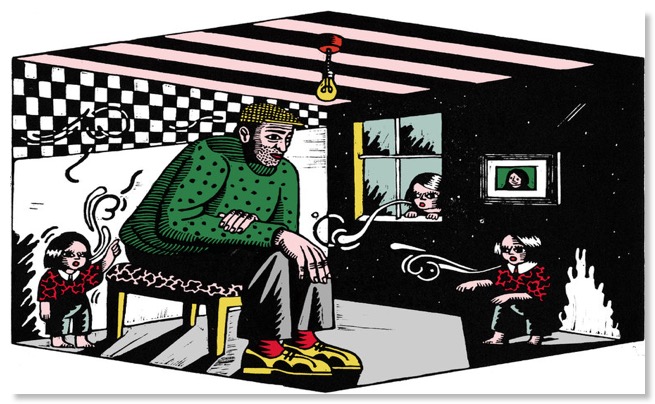Shakespeare
Detroit Recovery -- Powered by...Shakespeare?
October/04/2018 10:49

A hugely heartening story out of Detroit, where Sam White, artistic Director of Shakespeare in Detroit has with pluck and vision pushed forward her vision of Shakespeare as part of Detroit's revival. Taking cues from Jospeh Papp and his seminal work with the Public Theater in the 1970s, she has swooped in, staged performances in crumbling spaces, and now created a growing alliance with Aamir Farooqi, head of Banyan Investments. Read more here.
No Shame in That
October/04/2018 10:45
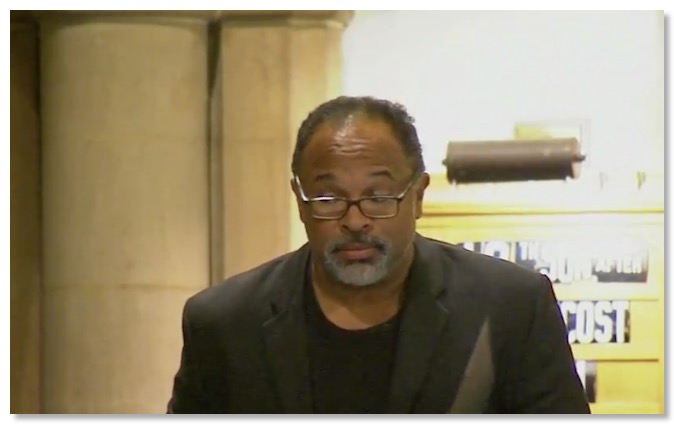
Mere weeks after the bizarre incident of being "job shamed", former Cosby actor Geoffrey Owens was spotted performing works of Shakespeare in Montclair, New Jersey. Shakespeare is Owens' first love. And we love that. Play on! More.
if You Can't Get to Stratford, Try Fuzhou
October/04/2018 10:27
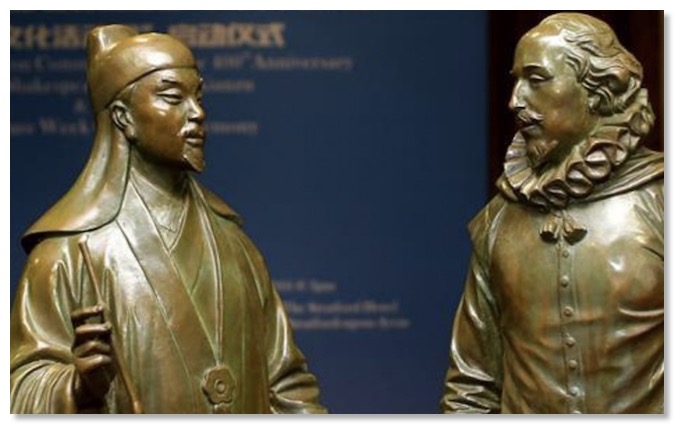
In yet another indicator of Shakespeare's influence and reach, a project to build a replica of Shakespeare's hometown is now underway. In addition to celebrating the life of the Bard, Sanweng (meaning "Three Masters") the town will highlight the works of Tang Xianzu, and Miguel de Cervantes. By happy (for us) coincidence, all three master poet/playwrights died the same year, 1616. More.
What's in a Word?
October/04/2018 10:20

This is an absolutely fascinating story out of China. The Chinese government is cracking down on the incorrect use of standard words in the Chinese language — what we might term "wordplay". The putative cause is the potential for "cultural and linguistic chaos". Some observers see something darker, an attempt perhaps to limit political dissent through the clever use of language and puns. Shakespeare would be red in the face, had he read such things….
The Doctor is In...
September/14/2018 10:58

England's David Tennant is considered a wide ranging and talented performer, and after making his name in the iconic Dr. Who Sci Fi series, went on to reprise several Shakespeare roles. Here, he answers Stephen Colbert's question — why Shakespeare?
Dictators Directing (and Other Nuggets)
September/14/2018 10:54
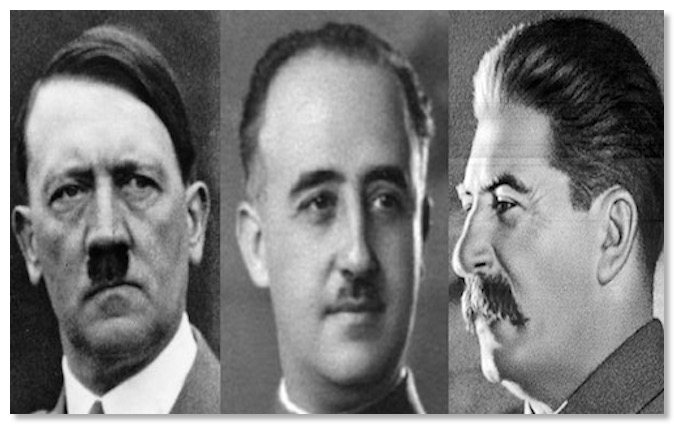
There are many "little known fact" lists about Shakespeare on the web, but this one had some delightful (and awful) revelations, including the fact that one of the 20th Century's most notorious dictators and mass murderers wanted to put on a Shakespeare production. Can you guess the dictator, and his chosen play? Read on!
Dying to see...Shakespeare?
September/14/2018 10:50
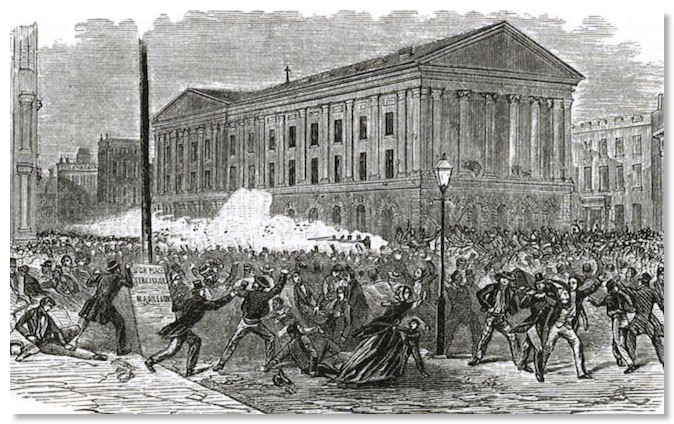
A wonderful collection of vignettes about Shakespeare and New York City, including the infamous Astor Place Riots of 1849, when it seems people really cared about their Shakespeare, to the point of killing each other…
Rude!
September/14/2018 08:33
Applied Shakespeare -- Which Plays Best Illuminate Our Current Political Climate?
May/22/2018 18:02

Harvard Professor Stephen Greenblatt's new book "Tyrant", is out, and has received another smart review. While leveling a few criticisms, reviewer Charles McNulty praises the book for deftly suggesting which of Shakespeare's plays best help inform our current political climate. There are some genuinely interesting insights, and one is reminded yet again of the sheer depth of Shakespeare's insights into the human condition, in this case, around the idea of how we are ruled, and what drives our rulers. Read the article to see where McNulty thinks Greenblatt got things right, and where he thinks Greenblatt got things wrong.
What's In A Picture?
May/21/2018 16:28

The most famous — and only — more or less true to life portrait of William Shakespeare is the so-called Chandos Portrait (above.) It has immortalized the now iconic balding pate, earring, and flowing hair and beard. The portrait itself has a fascinating history, but this article talks about the future restoration of the picture, and what the art restorers dare — and do not dare — do, to bring it back to its original glory. Well worth a read!
Mixed Reviews
May/16/2018 13:12

Part of the challenge in enjoying Shakespeare, is actually getting to see a good production. Theater critics therefore act as important gatekeepers for audiences, since with their practiced eyes (and professional obligation) they can not only steer audiences to better performances, but also provide valuable historical perspective to any modern production. But of course, critics differ (everyone's a critic, right?) so in this post we provide links to two reviews — one favorable, one less so — of the RSC and Christopher Ecclestone's current production of Macbeth. Seeing two contrasting reviews helps us further understand both the play, and audiences who consume those plays. In the unfavorable camp: The Daily Telegraph's Dominic Cavendish review. The favorable camps is represented by The Guardian's Michael Billington. Here is his review.
Film of the Play
May/16/2018 13:01
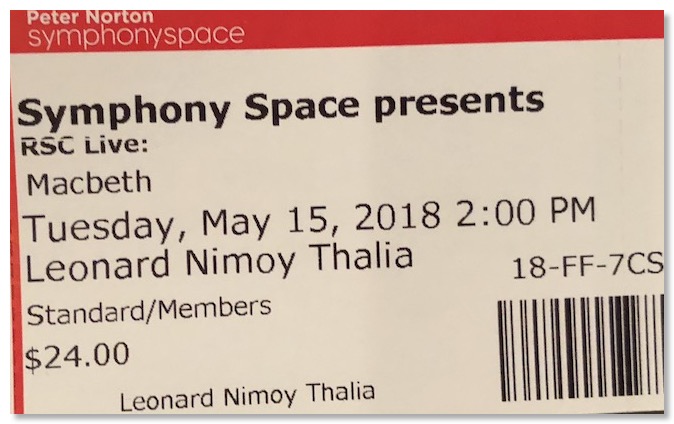
The Royal Shakespeare Company's Macbeth came to a New York movie screen yesterday, and the effect was not quite as electric as the Julius Caesar of three weeks ago. The good news, perversely, is that the problem lies not in the medium, but the performance. Although some of the acting and staging worked well, the overall impression was somewhat heavy and lacked subtlety, particularly from the supporting cast. The reason this seems like good news to me, is that the filmed-play-in-a-cinema medium seems sufficiently good to allow viewers/watchers to make such judgements. So bravo to the whole concept of filmed plays shown in movie theaters — yet another stage on which Shakespeare's works can shine!
Against Expectations
May/16/2018 11:24
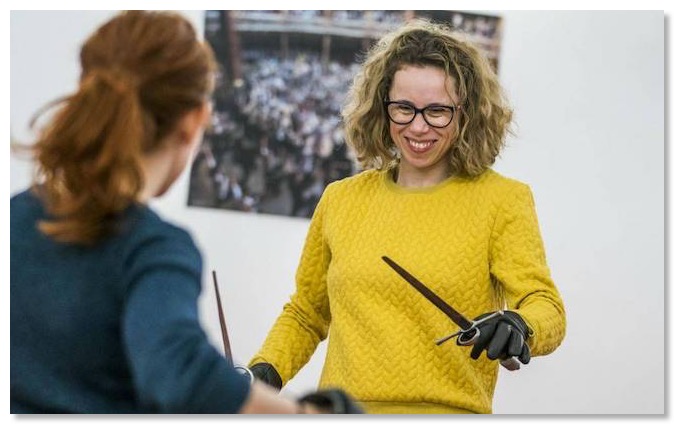
It's well known that in Shakespeare's era, young men played female roles (see here, here, and here). So the circle seems to be coming around on the issue of gender roles on stage with a new production by Michelle Terry (artistic director at The Globe) where gender will play no role in making casting decisions — Ms. Terry will herself play the role of Hamlet. It's an interesting discussion, made perhaps more fraught by today's our own era's uneasy discussions about gender roles and stereotyping.
Gambino and the Bard - A Complex Performance
May/10/2018 10:38

Film, TV star, singer, and entertainer Donald Glover, (stage name Childish Gambino) has put out a grim and troubling music video (This is America). What caught our attention was an article comparing the piece's multi layered messaging and overall complexity to Shakespeare, and the Bard's tendency to write on multiple levels about complex issues — graft, intolerance, cruelty amongst others. The article, from Heidi N. Moore writing for NBC news is well-written and thought provoking.
Beyond the references to Shakespeare, this video also reminds us of the different ways in which critics can make their points. Slate and The New Yorker choose writing (with embedded videos), while Art Insider chooses a deconstruction of the video with voice over and words and diagrams overlayed on the video. Both approaches work well, but Art Insider's approach seems to us slightly more effective overall. Judge for yourself!
A Title By Any Other Name
May/03/2018 14:57
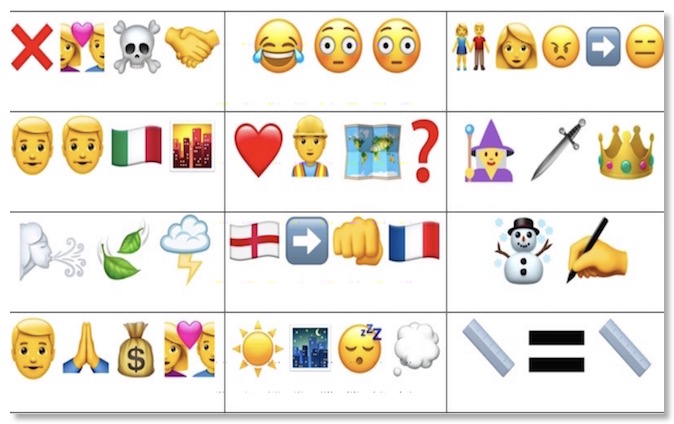
A short quiz to see how well you can intuit Shakespeare's play titles from emoji. Not sure how consistent they are in how they make these work, but we managed eleven out of twelve. Give it a shot, and test your skills!
The Uncertain Bugle
April/30/2018 20:46
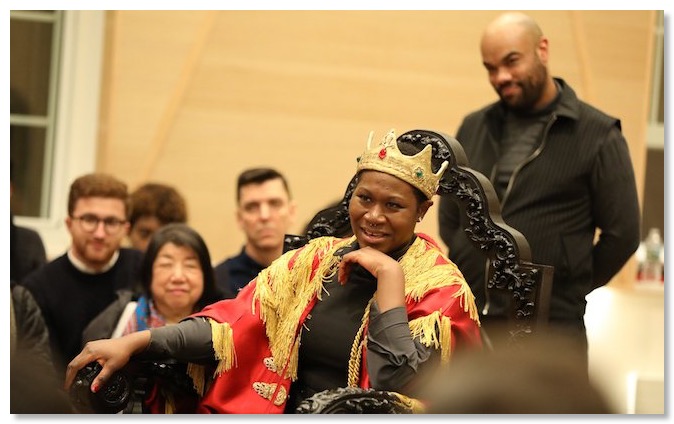
Henry V seems to get staged much more in England, no doubt as a result of its note of defiance against great odds that came in useful not just at Agincourt, but during the early stages of World War II. This lukewarm review of The Public's production (by their Mobile Unit) praises the casting, but criticizes the staging. Still, good to see Henry V performed in the US.
Selfie Taught
April/30/2018 18:16
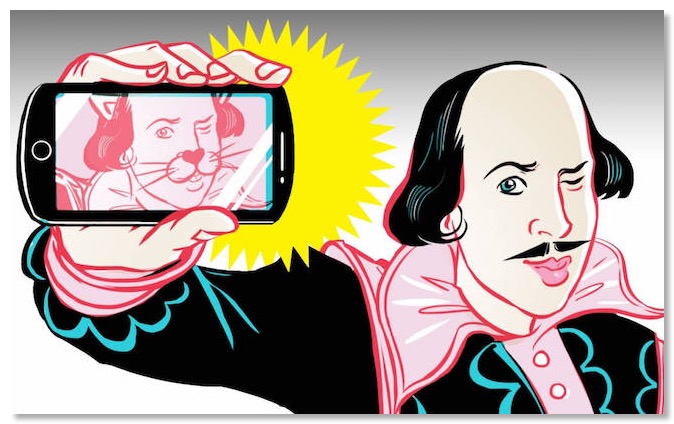
The Canadian Broadcasting Corporation just closed submissions for its Shakespeare writing contest entitled the Selfie Student Writing Challenge, a simple idea where students are asked to write a soliloquy or monologue in Shakespearean style of up to 400 words, on some modern subject or pop culture issue. It may be simple, but it's clever too, and perhaps worth putting into your school's curriculum…
Will Shakespeare, Mastermind
April/25/2018 10:07
A tongue in cheek look at Will Shakespeare as a quiz show contestant — a couple of clever jokes in there.
Lord Strange's Men
April/24/2018 16:24

The Globe (on London's south bank) and Stratford are two of the best known Shakespeare playhouses, but now a third is being build in one of England's poorest neighborhoods, as part of a revitalization plan. The 350-seat Shakespeare North Playhouse will be up and running in Prescott by 2020, and builds on a historical precedent: a playhouse was built there in 1593, though there is no evidence (yet) that Shakespeare ever visited it. Even better for this wonderful story: the replica globe will be build using materials and props built for Shakespeare in Love. Oh, and the title? The original playhouse was built with money provided by the Earls of Derby, and they also sponsored a troupe, called Lord Strange's Men.
Happy Birthday, Will!
April/23/2018 14:31
So Many Ways To Die, So Little Time...
April/22/2018 10:01
To Stay, or Not To Stay...
April/22/2018 09:42
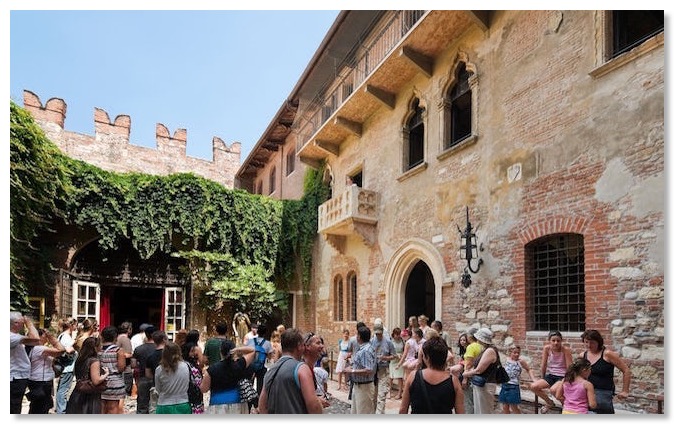
Guardian columnist William Keegan deftly suggests that Shakespeare would have voted for England to stay in the European Union, largely on the basis of all the plays that Shakespeare admiringly set in Europe — chiefly, of course, Italy — Romeo and Juliet (Julite's balcony in modern day Verona pictured above), Othello, Merchant of Venice, to name just three. Of course, one could just as easily suggest that Shakespeare championed England as a standalone and defiant entity in a sea of European wars (The Henriad) — but on the day before his birthday, let's go with Keegan's view!
AMND, in ASL
April/17/2018 15:36

Great news article out of Washington, on a production of A Midsummer Night's Dream, that will be co-produced in English and American Sign Language. Yet another barrier broken down.
Stamp of Approval (Part 2)
April/10/2018 15:50
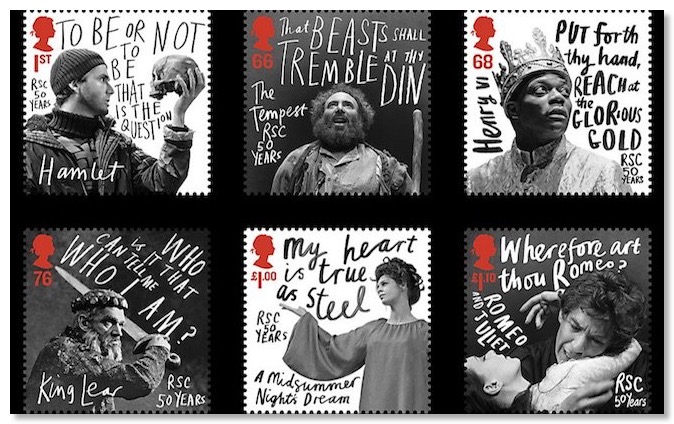
Our first post on commemorative stamps got us interested in how Shakespeare is represented on postage stamps. So we dug around, and found two things. First, from Hat Trick Designs and Marion Deuchars, this series of six stamps that came out in 2011 to commemorate the 50th anniversary of the Royal Shakespeare Company's founding. Starting at top left, here is the key to actors and plays respectively: David Tennant (Hamlet), Anthony Sher (The Tempest), Chuk Iwuji (Henry VI), Paul Scofield (King Lear), Sarah Kestelman (A Midsummer Night's Dream) and Ian McKellen and Francesca Annis (Romeo and Juliet).
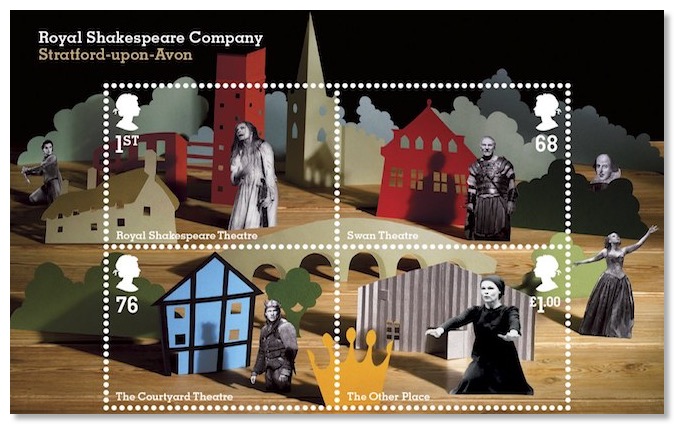
From the same anniversary, and with the aid of illustrator Rebecca Sutherland, a set of four stamps, in a very different style, showing the four Stratford on Avon theaters. The actors are harder to identify, but we think they are, from top left and going clockwise: Francesca Annis, Patrick Stewart, Ian McKellen, and Judy Dench.
Stamp of Approval (Part 1)
April/10/2018 15:43
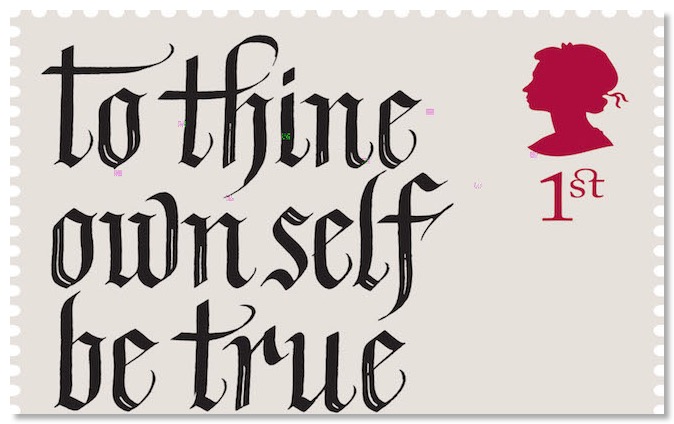
Almost exactly two years ago, in 2016, the Royal Mail issued ten commemorative stamps celebrating Shakespeare's 400th anniversary. Scholar Sir Jonathan Bate chose quotes from Hamlet, Romeo and Juliet, and Julius Caesar. Have a look at what other plays and sonnets made the cut.
Spring is Sprung (Timing is Everything)
April/06/2018 17:37

A New York-centric post today. Did you know that a subset of the flowers in the Shakespeare Garden in Central Park (tulip, narcissus and fritillaria) are timed to bloom on April 23 -- Shakespeare's birthday? You do now! Read here for more.
Shylock -- Victim or Scoundrel?
April/05/2018 17:28
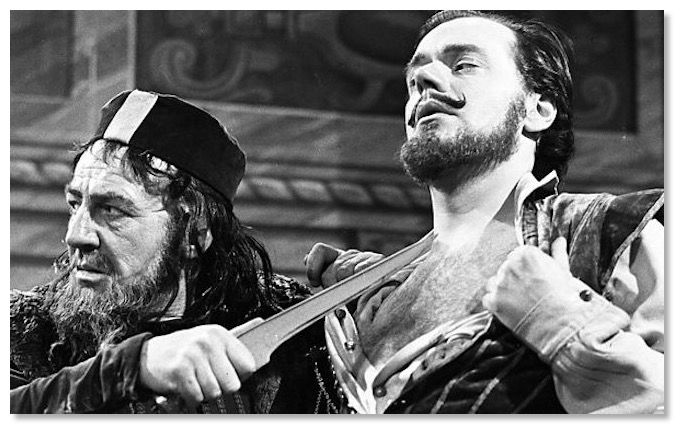
The classic "gotcha" Shakespeare question: "What is the Merchant of Venice's name?" — not, as many think, Shylock, but Antonio, which in itself indicates how Shylock has dominated our imagination about the meaning and nature of the play. But, as this interview with Howard Jacobson (talking here in 2016 about his book Shylock Is My Name) reveals, what we think about the play — and Shylock — is extremely hard to pin down. Which reveals, yet again, the genius of Shakespeare…
Unsex Me Here
April/02/2018 18:26
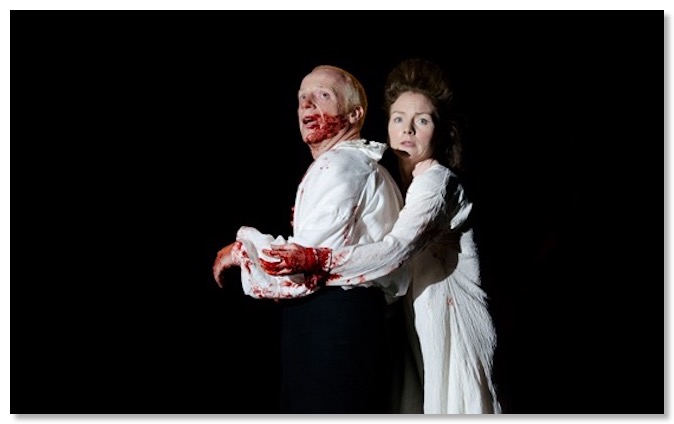
David Crystal, noted linguist and father of the excellent Ben Crystal, lays out in great and fascinating detail the words and phrases that Shakespeare brought to life in Macbeth. That one man could produce (and have adopted into the vernacular) so many great and powerful words and phrases in just one play, is simply astonishing. For teachers helping students grapple with Shakespeare's language, this really is a wonderful article.
Apparel Oft Proclaims the Man...
April/02/2018 18:19
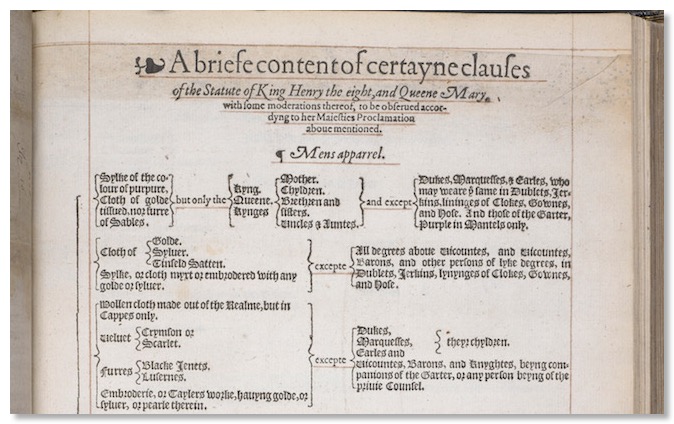
We often hear from students who use our Shakespeare eBooks, and one recurring question we get is: "Why do the actors wear modern dress, when the plays are set long ago?" There are several answers to this question (which can often drive a productive class discussion), including the idea that we were focused less on theater with a capital "T", and more on language and diction; that by removing one aspect of cognitive dissonance, we allow students to focus more on diction and rhyme; and that the "neutral" use of clothing allows students to more easily imagine how they might dress the actors, to further their directing goals.
However, the point of this post is to introduce the idea that Elizabethan England lived under a set of (to us at least) very stringent dress codes (also called sumptuary laws), which worked along class and wealth lines. To learn more about this, enjoy Liza Picard's excellent article on the subject.
Shakespeare's Education
April/02/2018 18:11
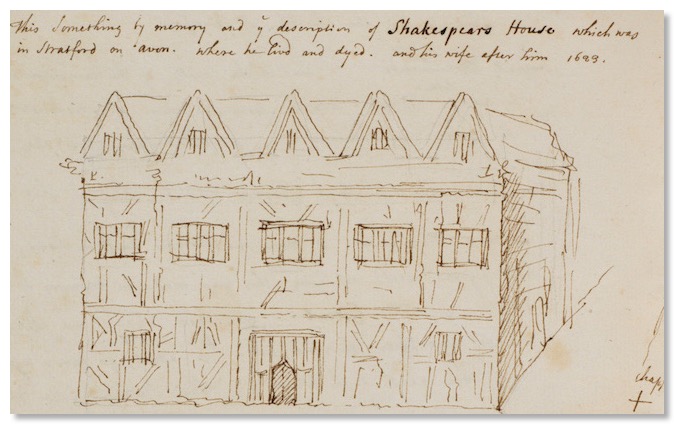
Just as many students today must read Shakespeare at school, so of course at one time, Shakespeare had to attend school, and read the notes and play writes of that era. This brief but detailed article by noted English actor Simon Callow nicely outlines the educational world and childhood Shakespeare likely experienced. And the schooling did not seem either easy, or particularly broad, as he notes in this passages: "They didn’t study history, they didn’t study mathematics, they didn’t study geography, they didn’t study science. They studied grammar, from dawn to dusk, six days a week, all the year round. Grammar – Latin grammar. They translated from Latin into English and from English into Latin. At school, ordinary conversation was in Latin; any boy caught speaking English was flogged. And they mastered the tropes of rhetoric, from antimetabole (where words are repeated in inverse order) to zeugma (where one verb looks after two nouns)."
Roger, Alan, and John
April/02/2018 13:48

There's a usual crew of actors we expect with Shakespeare (Gielgud, McKellen, Stewart, Dench, etc…) This list of 12 unexpected actors playing Shakespeare makes a change, even though the list does contain one person at least with whom we very much associate Shakespeare — Dame Helen Mirren. Still, there are some unexpected names on the list — the image above gives you a clue to three of them, and the visual answer is below. Enjoy.
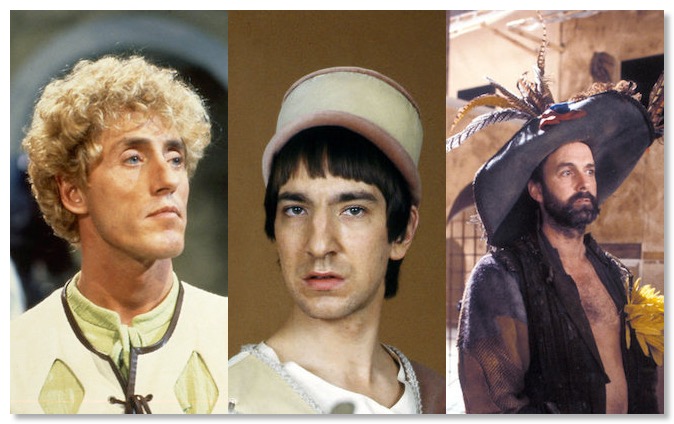
Open the Pod Bay Door...
March/31/2018 16:39

Hal 9000 — one of the most memorable "computer voice" in modern film history, the device that goes berserk, only to be outsmarted by astronaut David Bowman. Behind the voice, the seasoned Shakespearean actor Douglas Rain, who brought an eery, knowing, and menacing calm to the voice, and reminding us of our potentially fraught relationship with computers. This is a great New York Times article on several levels, and very much worth reading.
Two Macbeths, No Praise
March/31/2018 14:37
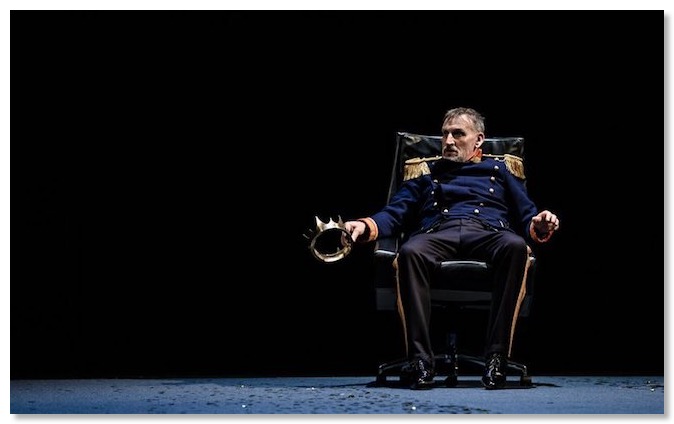
Hard on the heels of a favorable review of the latest RSC version of Macbeth, an altogether less kind review, which suggests that success in staging Macbeth is comparatively hard, as opposed to -- say -- Hamlet. An interesting comparison, and a thought provoking review. Two Macbeths currently in production — one at the Royal Shakespeare Company, the other at The National Theatre — get reviewed, and neither fares well
Play into Film into Play: Shakespeare in Love, Reborn
March/30/2018 12:55
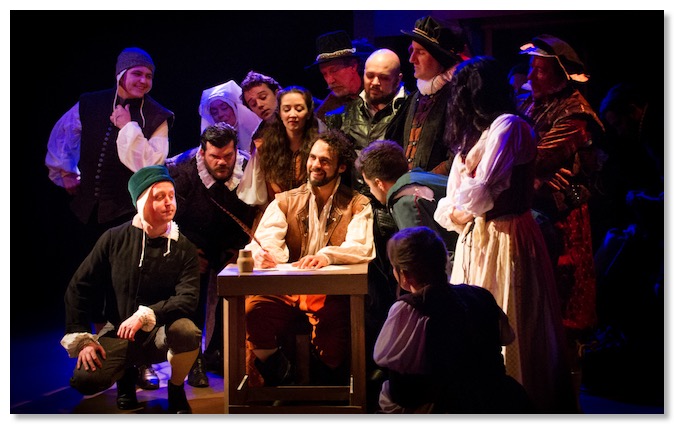
It's always interesting — and sometimes instructive — to see how a story changes when it makes the jump from one medium to another. In this case, The Austin Playhouse is putting on an adaptation for stage of the movie Shakespeare in Love (most recently tainted by the Harvey Weinstein scandal). The review is brief, and gives the adaptation and the performers a solid thumbs up, but acknowledges that it breaks no new ground. A safe, and probably enjoyable evening of theater — just as Shakespeare would have wanted it!
Take Note
March/29/2018 12:49
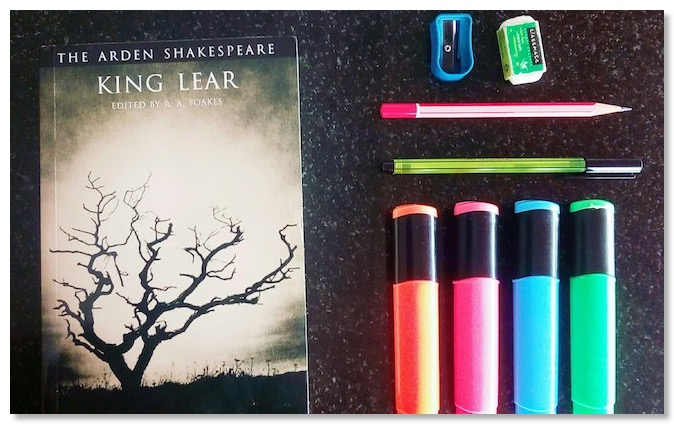
Shakespeare Magazine (now 13 issues old) works to bring all things Shakespeare to a broader audience. With varying degrees of success, they surface a number of issues surrounding Shakespeare's works. Another resource of possible interest to teachers, and here we highlight Amogha Sridhar's piece. We particularly like the image of a text, together with the annotation tools she uses to work on Shakespeare's texts - highlighters, pencil, eraser, and sharpener. All still necessary, even in an increasingly digital world.
Star Wars Shakespeare Parody Series to Continue
March/28/2018 15:05
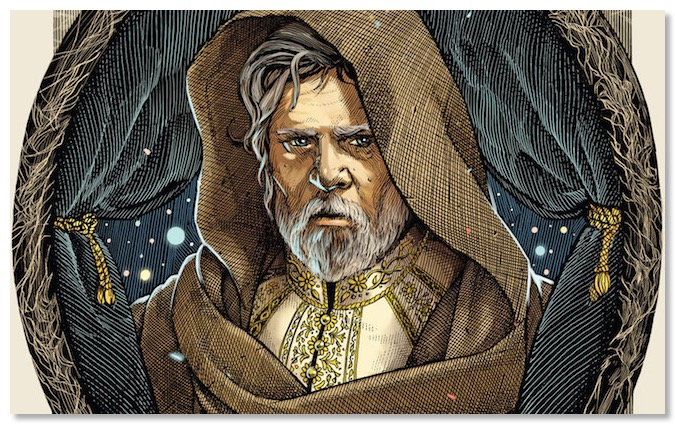
Ian Doescher scored quite a hit several years ago by creating a Elizabethan parody of the Star Wars films (more or less every title tacking "etc" to the end of a word or two and giving it a Shakespearean language veneer). With six tomes under his belt, the next in the series is due out July 7, as announced by Star Wars website. Whatever its limitations in terms of introducing readers to Shakespeare's language, it does certainly convey the rhythm and affect of Shakespeare's work, and can surely only help for students who struggle to understand his language.
A-Hoyden, Me Maties!
March/26/2018 09:46
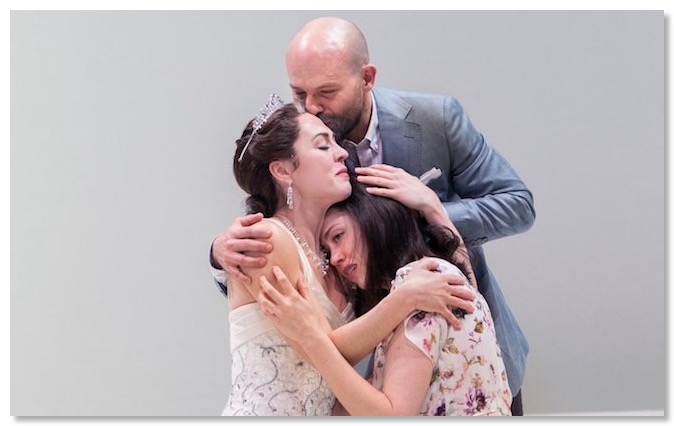
The first reviews are coming out for Theater for a New Audience's The Winter's Tale, and this one from The New York Times is strongly favorable. Beyond its careful parsing of the production and performance, New York Times writer Jesse Green picks out some Shakespeare linguistic gems (the neologism bed-swerver for unfaithful wife) and also casually uses the word Hoyden — which apparently means a boisterous girl.
The Power of an Image
March/24/2018 18:18
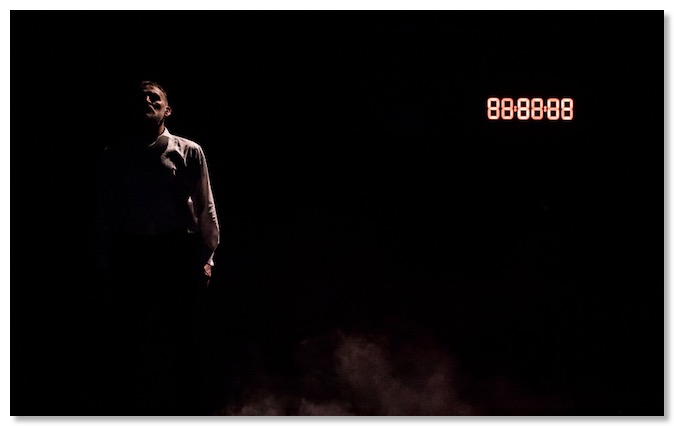
Class discussion can often be made more dynamic and energetic by using images from different productions, or even images from a single production. This link to the Royal Shakespeare Company's image gallery of its current production of Macbeth is such a resource. Some questions teachers might ask include (but are definitely not limited to): What does the costuming tell you about the production? Is the blood displayed indicative of a restrained, or hyperbolic production? What modern visual concepts does the director use, and why might he have used them? What ideas might you take from these production images if you were putting on the play? Can you guess the various characters from the way they look?
The Film of The Play
March/23/2018 12:03
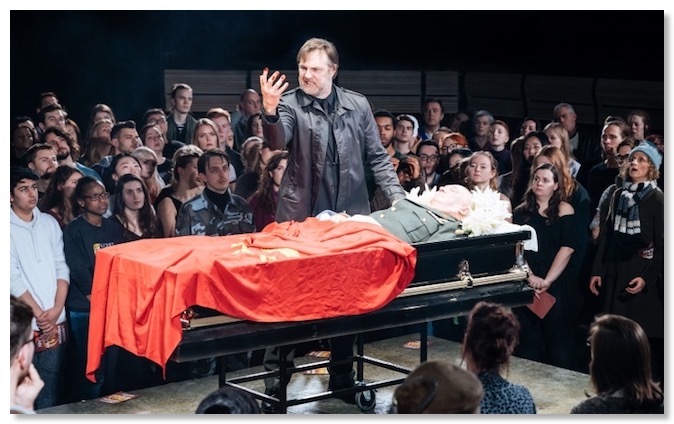
Well-reviewed in London, we were able to at last see the National Theatre's Julius Caesar performance beamed from London to a movie theater in Manhattan. As a quick comment on the experience — and not to offend ardent theatergoers — a friend of the blog commented that the advantage of watching a "live" play on a screen in a movie theater seems similar to the advantage of seeing a sports game on TV - multiple camera angles, perfect sound, and a greater sense that one is seeing absolutely everything to advantage. The long and the short of it is that watching Julius Caesar via The National Theatre Live program provided an excellent experience, and we recommend it to anyone who might be curious.
I Tonya Meets Shakespeare?
March/23/2018 11:55

Margot Robbie, who has come to prominence through performances in movies such as I Tonya, will be producing ten of Shakespeare's plays with a focus on female perspectives, as well as an Australian emphasis. Yet again, Shakespeare provides the fertile loam for experimenting with story telling in entirely new venues.
A Lost Child, A Lost Kingdom
March/22/2018 16:45
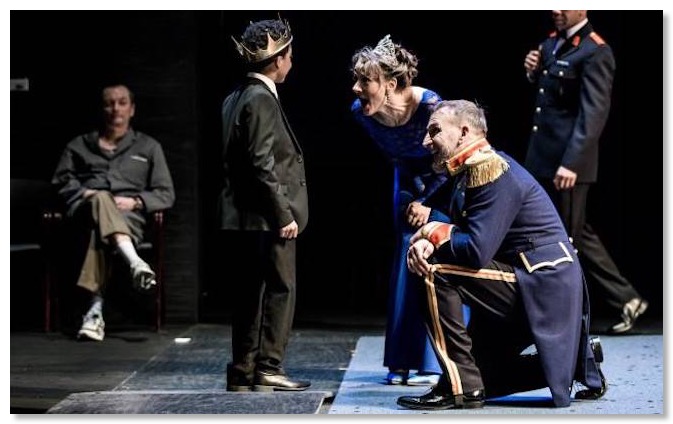
A mixed but mostly positive review of the Royal Shakespeare Company's latest offering of Macbeth, with noted Dr. Who actor Christopher Eccleston, ably accompanied by Niamh Cusack as Lady M. As with Michael Fassbender's 2015 movie version, the loss of their child underpins many of the conceits of this production, working sometimes, but not always, in particular in the second half of the production. See the review here.
Speak the Speech as the Robot Recites it?
March/19/2018 17:13

Shakespeare resonates all around our contemporary world, but this article from WKERA in Dallas points to a use for Shakespeare in the future, in robots that work with the elderly. Astonishing work from the folks at the Emotional Robotics Lab at UT Arlington.
Without Rhyme or Reason (It Must be Shakespeare!)
March/19/2018 16:59
In this nicely done two minute video, English comedian Rob Brydon runs through some phrases that are in the English language today, that were coined by Shakespeare. How many? By our count, 61. How many do you know? Watch and find out!
Starlings, Shakespeare, and an Air Crash
March/19/2018 16:37

One of the sadder Shakespeare related stories from recent history. Shakespeare (indirectly) caused an air crash in 1960. A plane taking off from Logan Airport in Boston was brought down by a flock of starlings. The Shakespeare connection? Starlings are not native to the US, but were brought over by Shakespeare fanatic Eugene Schieffelin in 1860, so that Central Park would be stocked by every bird mentioned in Shakespeare’s works. For more on the story, read a New York Times archive story, and a wikipedia entry on the events surrounding the actual crash of Eastern Airlines Flight 375.
The Winter's Tale (II)
March/19/2018 14:07
A three minute interview with director Erin Arbus. She discusses her vision of what Shakespeare may have been thinking and attempting to do with this play, written after his great tragedies had come out. Redemption? Forgiveness. memorialization on the fifteenth anniversary of his son Hamnet's death? Interesting and thoughtful.
The Winter's Tale
March/19/2018 13:15
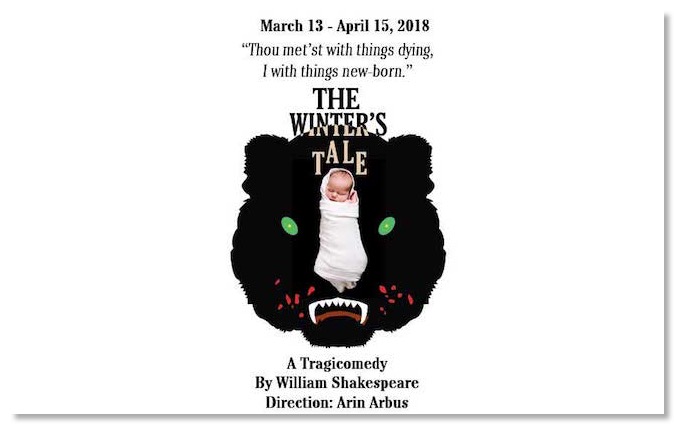
The Winter's Tale, though of one Shakespeare's more obscure and less performed plays, also claims the dubious honor of "the gaudiest stage direction" in the canon: "Exit, pursued by bear". That's a pity, because the play is memorable for more than just that - for example, the bringing back to life of a dead character through the animation of a statue. The play is also sometimes characterized as one of Shakespeare's "problem plays", that is a play whose type is hard to categorize. It starts off as a dark drama filled with jealousy, fear, recrimination, and child abandonment, and yet works it's way into a "happily ever after" ending. Tragicomedy? Whatever the type, director Arin Arbus with the Theater for a New Audience, has put up an enjoyable version of the play, and well worth seeing if you are in Brooklyn and have an evening to spare!
Be Kind to the Tired, the Poor, the Hungry
March/17/2018 09:55
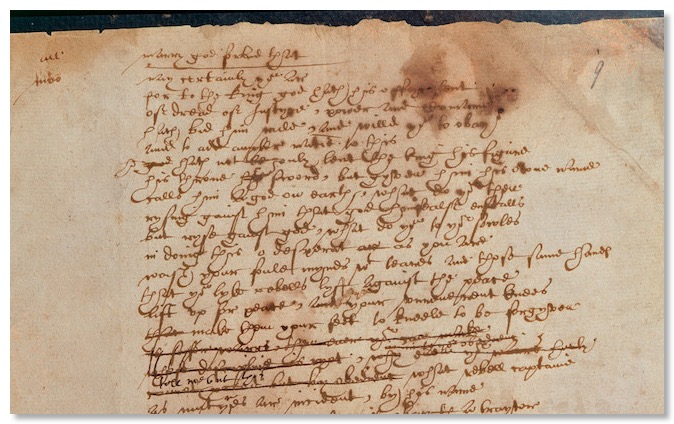
Almost none of Shakespeare's handwriting survives today — mainly his signature on various legal documents. But this edited script from a play that Shakespeare had a hand in but did not write — The Book of Sir Thomas More — contains some of his handwriting. And what he has to say in it, says something about what Shakespeare believed about the fate of refugees, and mobs that would treat them poorly. A fascinating piece from NPR.
All Those in Favor, Say "Ides"
March/16/2018 13:59
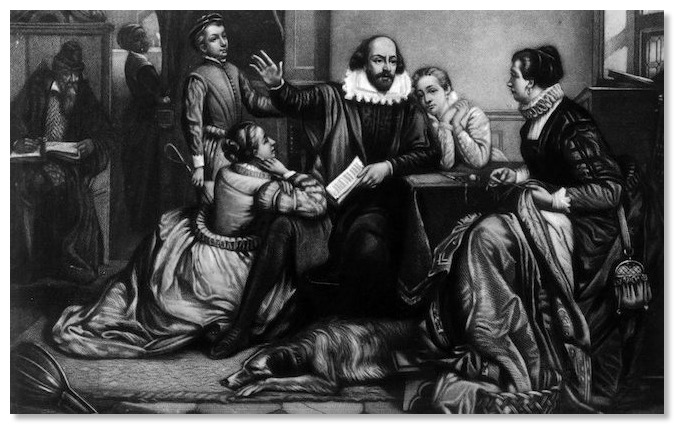
It's that day of the year again, the dreaded (for Roman dictators at least) Ides of March. Professor James Shapiro of Columbia University takes the opportunity to discuss Shakespeare's importance not just to America, but to New York City itself. And there are some great little stories in there.
Is This a Stick Figure I See Before Me?
March/15/2018 09:45
Shakespeare: profound, far reaching, capable of the deepest insights into the human soul, etc. So how could stick figure cartoons possibly capture even the smallest part of his oeuvre? Well, Good Tickle Brain somehow manages to do this, and more. For young students, this may possibly provide a helpful first step. Adults too, for that matter.
Alas, C3PO, I Knew Him, Luke
March/14/2018 17:40

This is a two year old summary video by the New York Times, but it is really good. It examines Shakespeare's pervasive influence throughout our high and low culture, and manages neither to sneer nor fawn in the process. Well worth three minutes, and a great primer for classroom discussion. It includes references to The Simpsons, Different Strokes, Star Wars, The Muppets, Sesame Street, Star Trek, Iron Man, A Fish Called Wanda, Die Hard, The Terminator, The Postman, Lion King, Empire, Sons of Anarchy, House of Cards, Gilligan's Island, and performers such as David Bowie, Beyoncé, Styx, and…Bugs Bunny?
A Violent, but Alas Enduring Sentiment
March/08/2018 13:07

An unpleasant yet enduring sentiment, here on the side of a Manhattan bus in March 2018, and of course generated by Shakespeare in Henry IV Part II. Yet another confirmation point of Shakespeare's enduring insight into human obsessions.
It's Time, Once Again, to Suggest that Shakespeare was not Shakespeare...
March/07/2018 13:05

Every six months to a year or so, a claim is made that Will Shakespeare, of Stratford, did not write the plays we generally associate with him. This article is slightly different, since it leaves that aspect of the Shakespeare debate to the end (with a pretty good refutation of the theory that "Shakespeare is not Shakespeare".) The first part of the article suggests that a 1576 copy of a French collection of tragedies (François de Belleforest's Histoires Tragiques) was not only used by Shakespeare for inspiration (specifically, Hamlet), but also has some of his annotations. As always, the debate will rage on!
Insulting
March/05/2018 12:02

In the classrooms we have visited over the last few years, we've noticed that Shakespearean insults, and software that generates "Shakespearean-style" insults seems to work well in capturing the imagination of younger students. We recently came across this amusing video of Siobhan Thompson deploying insults in a 21st century context. Cleverly done, and not too insulting…
Bard Behind Bars
March/02/2018 11:02
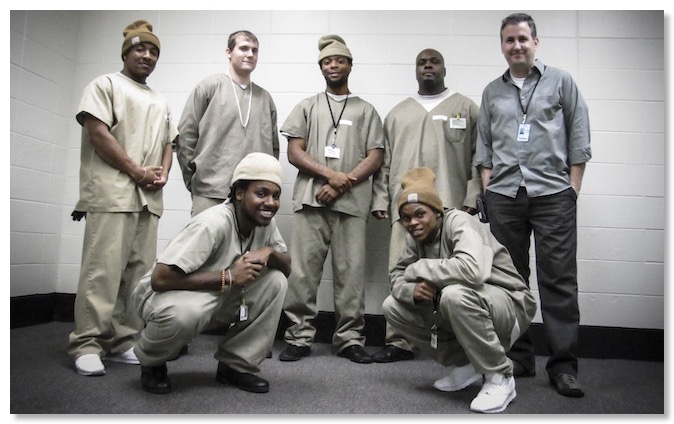
After the last few days of humorous posts, a more somber one to end the week. At many prisons across the United States, Shakespeare is used as a tool for educating inmates, and re-integrating them into communities. One of the older of these programs is Curt L. Tofteland's Shakespeare Behind Bars program in Kentucky, started in 1991. Their latest production: A Midsummer Night's Dream, a production which uniquely, requires theatergoers to undergo a background check and security clearance.
Teachers Are Already Armed...With Shakespeare (Parody).
March/01/2018 15:14

The Onion pitches in to the distressing state of weapons in classrooms with this humorous piece - the power of the pen over the sword. If only it were ever thus.
Horrible Histories: Meeting Will
February/28/2018 10:26
A lighthearted (and light touch) approach to introducing Shakespeare to students, as Will Shakespeare visits an English school to explain, amongst other things, his creative process (just don't call him cheat!)
Opera to the Rescue!
February/27/2018 11:15
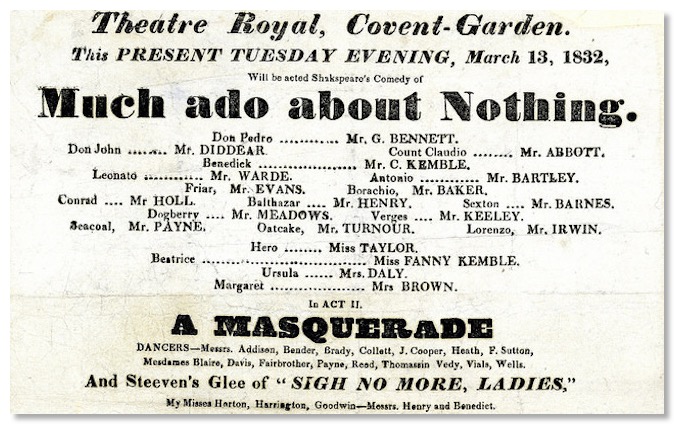
A relatively little-known fact — before the RSC was on the scene, and well before Shakespeare's reconstituted Globe, Shakespeare's plays were often put on in London's famed Royal Opera House. Let's hear it for collaboration across the arts!
Speak the Speech...
February/26/2018 08:09
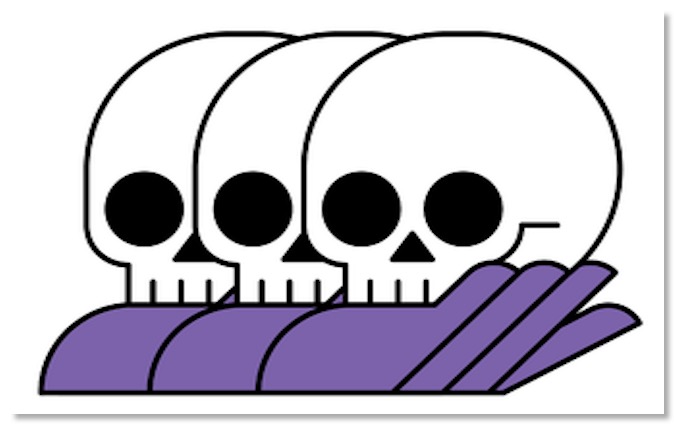 The Royal Shakespeare provides many valuable educational resources. Here, Jacqui O'Hanlon, Director of the RSC's Education outreach group, provides some tips on how to memorize Shakespearean verse. Useful.
The Royal Shakespeare provides many valuable educational resources. Here, Jacqui O'Hanlon, Director of the RSC's Education outreach group, provides some tips on how to memorize Shakespearean verse. Useful.Don't Judge The Accent. Judge the Acting
February/22/2018 09:41
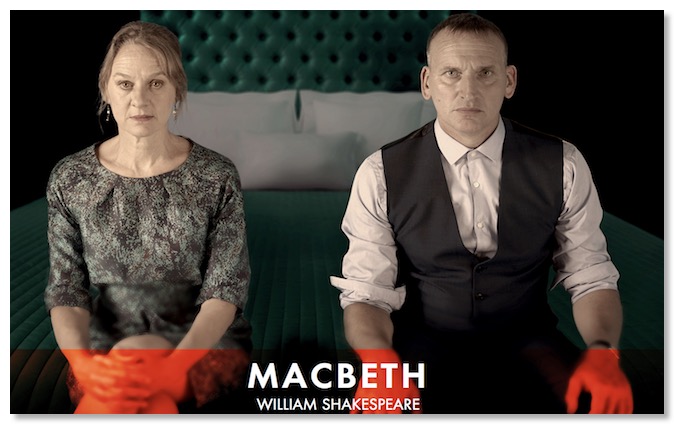
A great interview with Christopher Eccleston, an English actor perhaps best known for being the ninth doctor in the storied Dr. Who series. The interview has two great talking points — the fact that accents matter very little in performance (take note those who say that only the English can perform "true Shakespeare"), and also, now that it has been announced that the 13th Doctor Who will be a woman (Jodie Whittaker), that a time is coming when women can — and should — take on the great (traditionally male) roles in Shakespeare's plays. A very humane and thoughtful discussion. Eccleston will play Macbeth in a new RSC production opening in March.
What's in a Production?
February/21/2018 08:21
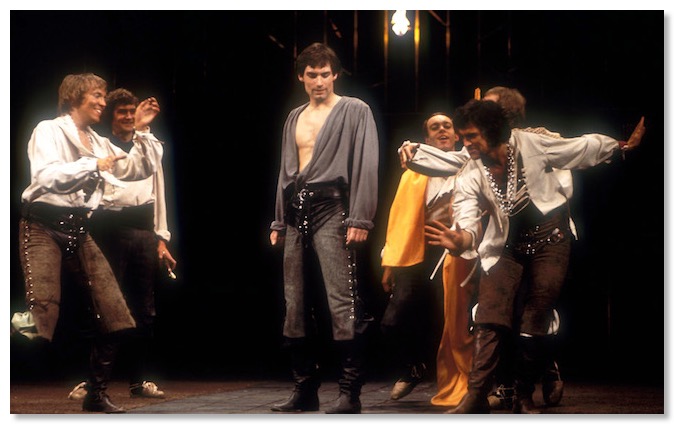
Between 1961 and 2010, The RSC put on sixteen different productions of Romeo and Juliet (including a 1973 production directed by Terry Hands, with Timothy Dalton as Romeo.) (Do they call him Montague…Romeo Montague?) The interactive timeline provides a great teaching resource, allowing teachers to compare and contrast different approaches to the same classic play.
Upstart Crow
February/20/2018 09:10
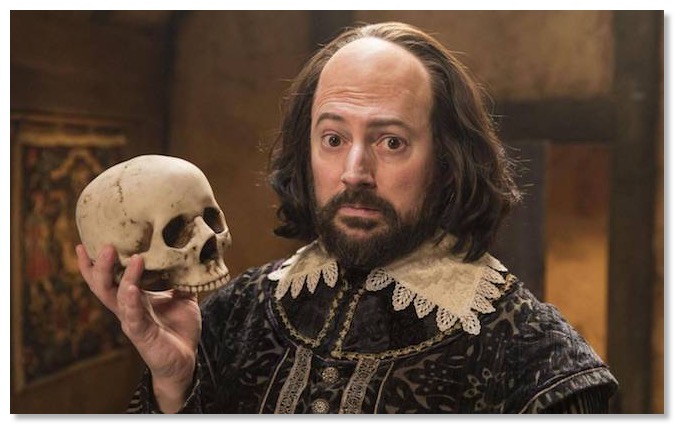
Fans of Rowan Atkinson's Blackadder series should know about Upstart Crow. With the same writer (Ben Elton) and yes, the same slightly lowbrow (but gentle) sensibility, Upstart Crow stars English comic actor David Mitchell. With two seasons under its belt, and a third on its way, it offers an enjoyable peep inside Shakespeare's life. Sort of!
An Embarrassment...
February/16/2018 13:59
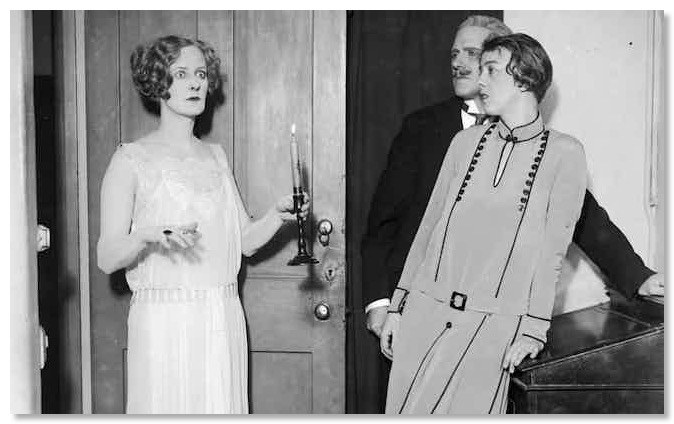
A harsh (and to some extent amusing) editorial piece on a 1928 production of Macbeth. The chief complaint is that the performance is set in modern (that is, circa 1928) dress, and that this impedes the understanding and enjoyment of the play. Shakespeare has come a long way in the last 90 years…
The Two Noble Kinsman
February/15/2018 15:39
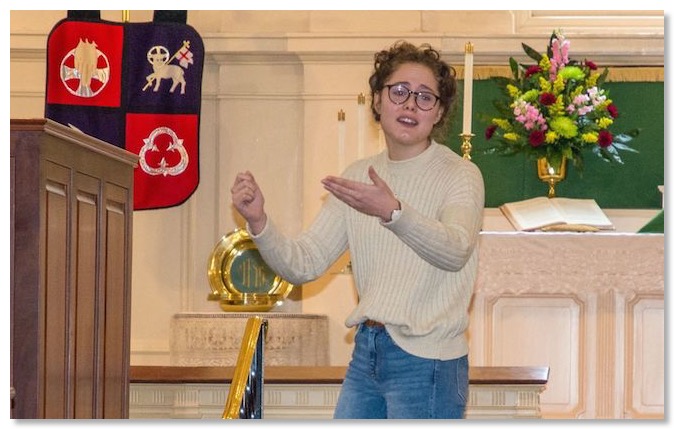
Shakespeare contests abound, and we love to see them pop up here in the US and abroad. This one caught our eye because of the winning passage, which came not from Hamlet, Othello, Henry V — but from The Two Boble Kinsman, certainly one of Shakespeare's least well-known and performed plays. So bravo to Jenna Burns for not only using a passage from that play…but winning with it as well!
Age (In)appropriate?
February/13/2018 09:47

Always beneath the surface with Shakespeare's plays: how do 21st Century teachers handy the sometimes bawdy and violent imagery and language in Shakespeare? In Western Australia, principal Ted Kosicki feels that certain texts — including Romeo and Juliet — need to be reviewed, and possibly removed from the curriculum. A tricky subject, and also proof again of the value Shakespeare provides, by exciting discussion and thought.
Writing While Under the Influence...
February/12/2018 12:32
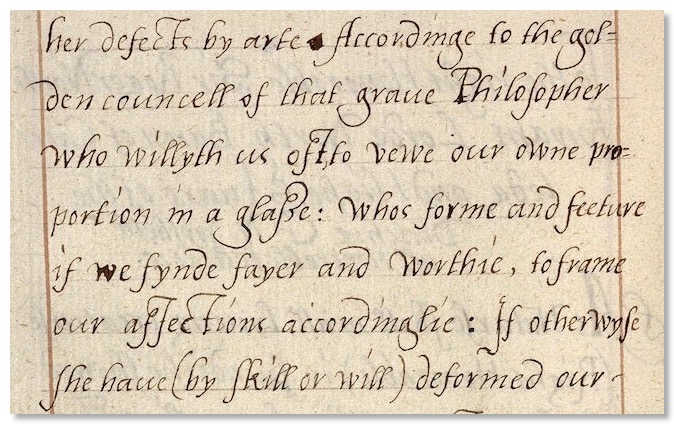
Shakespeare did not write in a vacuum, and scholars today confirm that he was heavily influenced by Holinshed's Chronicles, and Plutarch's Lives (properly titled Lives of the Noble Greeks and Romans.)
Now, an amateur and deeply capable scholar — Dennis McCarthy — has, in collaboration with Professor June Schlueter, ferreted out what is likely to prove a powerful third influence on Shakespeare, the writing of one of Queen Elizabeth I's ambassadors to Sweden, George North. An obscure diplomat until now (his Wikipedia entry starts onFebruary 8, 2018 — 4 days ago!) he had an elegant turn of phrase that clearly caught Shakespeare's attention and imagination. The book that sparked Shakespeare's — and now our — interest, was A Brief Discourse of Rebellion & Rebels. Read the New York Times article here.
Sounds About Right!
February/09/2018 08:36
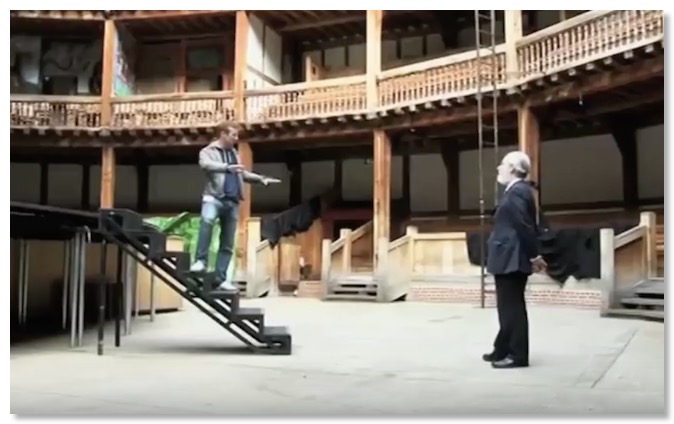
David and Ben Crystal provide a genuine service to Shakespeare lovers (and doubters too, really) by hypothesizing on what Shakespeare's language might have sounded like in its original pronunciation. In addition to being intrinsically interesting, it has an impact on performance, if actors and directors wish to provide an "original" production to their audience. Very worthwhile video clip.
From the Cutting Room Floor
February/07/2018 08:37

A great film resource for Shakespeare films from the British Film Institute. Some free, some rentals, and some available to members only, but the list is comprehensive, and well worth a visit if you're looking for old takes on the evergreen Shakespeare canon.
Hail Caesar! (Part II)
February/06/2018 15:16

Another very favorable review by Rebecca Mead at The New Yorker of Nicholas Hytner's production in London of Julius Caesar, and an interesting discussion about staging — in particular the use of audience members as part of the crowd
Hail Caesar!
February/04/2018 19:31
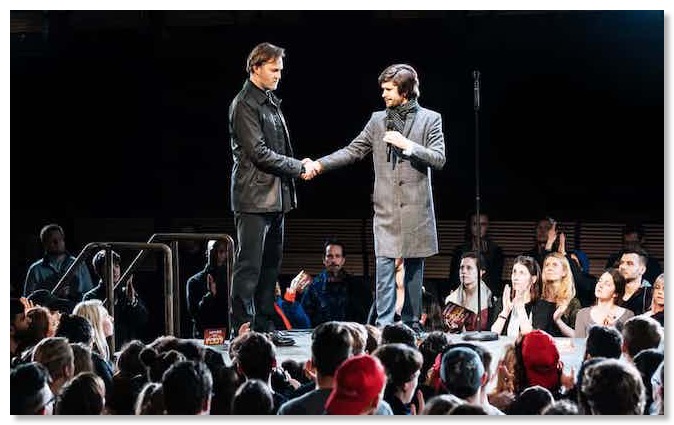
Another production of Julius Caesar, reflecting our growing preoccupation with demagoguery and the virtues and perils of republics and democracies gone awry. Ben Whishaw, Michelle Fairley, David Calder, and David Morrisey all put in excellent performances, according to Guardian critic Michael Billington. The play is at the Bridge Theatre, an the set design has audience members be part of the mob.
Power to the People!
February/02/2018 09:50

An interesting approach to making a film of Macbeth, using both professionals, and local amateurs in the overall production process. The trailer for the actual movie (not yet out) looks intriguing, and the production's sentiment genuinely admirable. Nicely done, Screen Northants.
New Digitized Facsimile of 1623 First Folio Published by Bodmer Lab
February/01/2018 10:15
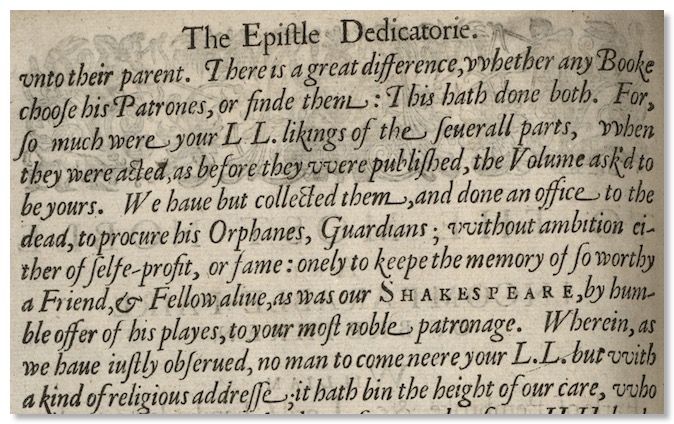
Geneva's Bodmer Lab has made available to the public a full high resolution digital copy of a 1623 First Folio. Pictured above is a part of the dedication of the volume by Heminges and Condell to their patrons, William, Earl of Pembroke, and his brother Philip, Earl of Montgomery. A tremendous asset to scholars, teachers, and students, but note, the text of the web site is in French.
May I Misquote You?
January/30/2018 17:22

Always fun to track down a misquoted quote. Here, the offending (and never-written-by-Shakespeare) quote is: People usually are the happiest at home Writer Mark Fisher goes on to cite a real quote (from Henry V) which highlights how the initial sense of an Shakespearean phrase can often be the exact opposite of its actual meaning: "Men are merriest when they are from home", where "from" means "away", rather than "at".
How Do You Explain Probelms with the Indian Economy? Shakespeare (obviously!)
January/30/2018 12:04
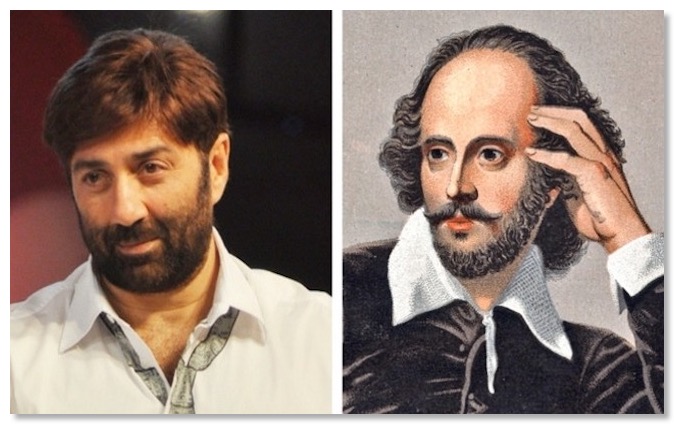
Yet another indicator of Shakespeare's ubiquity: India's chief economic advisor, Arvind Subramanian, explains aspects of India's economic challenges by referencing who else, but The Bard (and Indian actor Sunny Deol).
Eat, Drink, and Watch Shakespeare!
January/29/2018 20:07

Turns out, you can attend a performance of Shakespeare, and drink your way through it all. Unorthodox to modern ears, but as this article from NPR points out, likely the approach (for audience members at least) from Elizabethan times. And the name of the troupe? Why, The Drunk Shakespeare Society, of course!
Permission Granted
January/26/2018 10:11
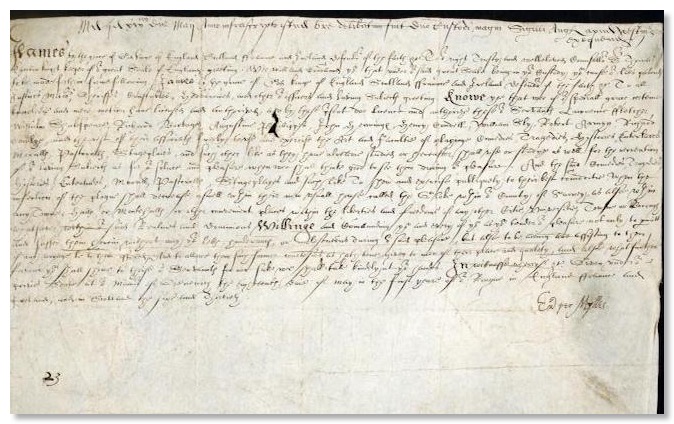
The original document used to announce King James I's granting of a royal warrant to Shakespeare's acting troupe, changing their name from The Lord Chamberlain's Men to The King's Men, and permitting them to perform "Comedies, Tragedies, Histories, Enterludes, Moralles, Pastoralles, Stageplayes". Read and see high quality digital scans of the warrant.
An Excellent Resource, From an Excellent Orgnization
January/25/2018 17:28

Photo by Rob Freeman © RSC
In addition to doing remarkable work in Stratford and beyond, the Royal Shakespeare Company (RSC) also provides a host of excellent resources for teachers and students. Feast! (And if you're wondering what text is being worked on in the photo — it's Henry IV, 2 Act 4, Scene 3 (Thy due from me / Is tears and heavy sorrows of the blood, / Which nature, love, and filial tenderness / Shall, O dear father, pay thee plenteously. / My due from thee is this imperial crown.
Meghan and The Bard (13 times removed)
January/24/2018 12:10

It seems that Meghan Markle and William Shakespeare are related. It's not a close link (400 years will do that), but according to MyHeritage.com, she is Shakespeare's fifth cousin, 13 times removed — and Winston Churchill's sixth cousin, five times removed.
A Titan Passes
January/23/2018 15:30
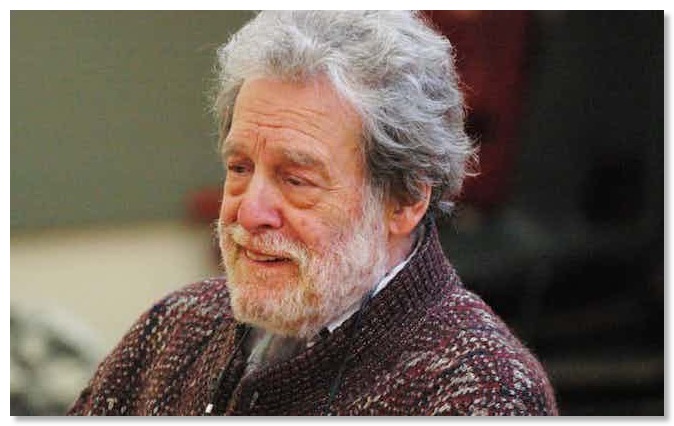
An absolute giant in the Shakespeare world has passed away. Read more about John Barton in his obituary, and his Wikipedia page. To see him at his avuncular and incisive best, watch some of his work on Playing Shakespeare.
Fundamentally Dishonest, or Fundamentally Cautious?
January/19/2018 09:12

The discussion about trigger warnings lapped on to Cambridge's shores late last year, with the news that English literature students at Cambridge received trigger warnings about sexual violence and assault in regards to Titus Andronicus and Comedy of Errors. Professor Mary Beard and Cambridge Shakespeare Festival Artistic Director David Crilly reacted strongly against the move.
If You Can't Make it to Stratford, How About Visiting San Weng?
January/18/2018 12:56
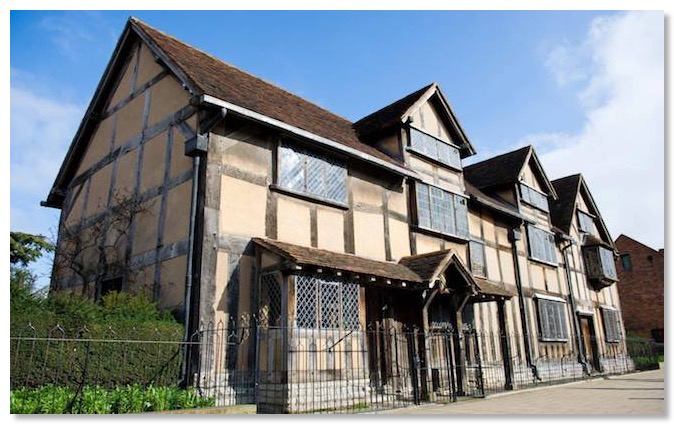
China will recreate the playwright's family home / Shakespeare Birthplace Trust
The Shakespeare Birthplace Trust has signed an agreement with the Fuzhou Culture and Tourism Investment Company, permitting the building of a replica of Shakespeare's Stratford home in San Weng. Two other notable writers will be so honored, including Miguel de Cervantes, and Tang Xianzu — very roughly China's nearest equivalent to Shakespeare.
If Shakespeare Was Doing A Celebrity Tour Today
January/17/2018 16:06
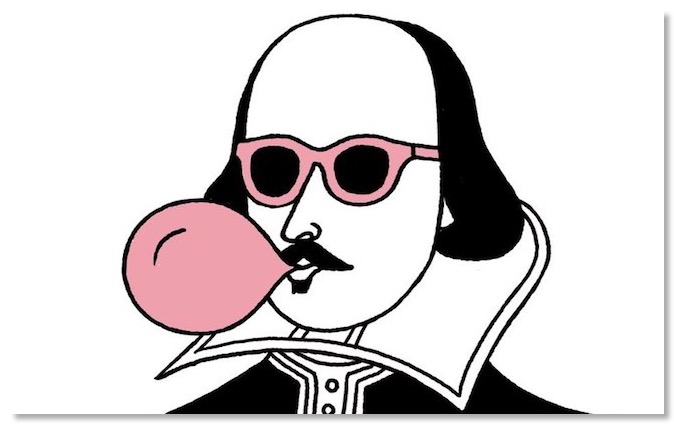
Illustration by Luci Gutiérrez
The New Yorker's amusing piece imagining Shakespeare as a jaundiced celebrity author doing his umpteenth solipsistic interview
Shakespeare at the Rugby Stadium
January/15/2018 11:47

This is an article about rugby (obviously). But it's always nice to see a little Shakespeare allusion threaded in, amongst the heaving athletes, and the blood, sweat, toil, and tears!
William Shakespeare as Quentin Tarantino...
January/12/2018 13:05
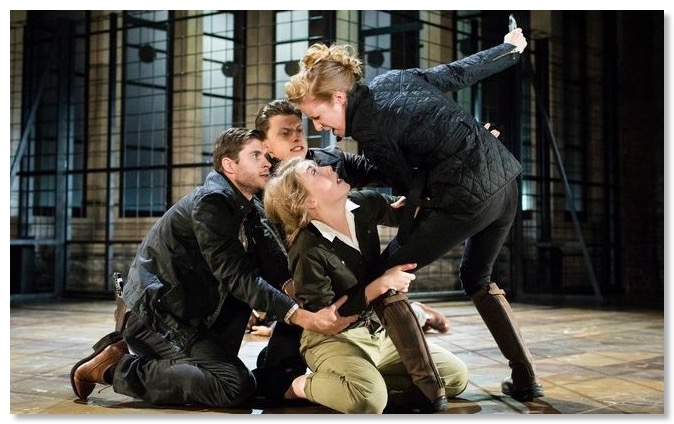
Three reviews of the RSC's current season at the Barbican Theater — Titus Andronicus, Antony and Cleopatra, and Julius Caesar. Of the three, Titus comes off best, with some interesting analysis by reviewer Matt Wolf, in particular the idea that Titus Andronicus in some ways was Shakespeare's preparation for King Lear — particularly in terms of the channeling of extreme violence and the resulting pathos. An interesting take.
Permission to Speak
January/11/2018 17:45
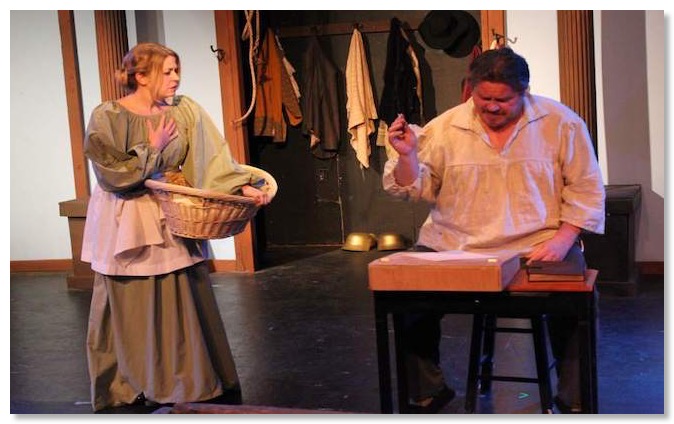
Michael Axel, right, as Shagspeare, performs alongside Emilty Cady, as Judith, in "Equivocation," a play that imagines a
scenario in which Shakespeare has been commissioned as a government propagandist.
Bend, Oregon's 2nd Street Theater put on an original production, "Equivocation", examining whether playwrights should write about contemporary events, whether in polemical opposition, or as propagandists. An interesting fact that emerges from this review: Shakespeare and his contemporaries were forbidden from writing about current events in their works.
Shakespeare, Xenophobia, and the Ghetto
July/05/2017 15:40
Your Heartrate May Vary...
July/05/2017 15:22
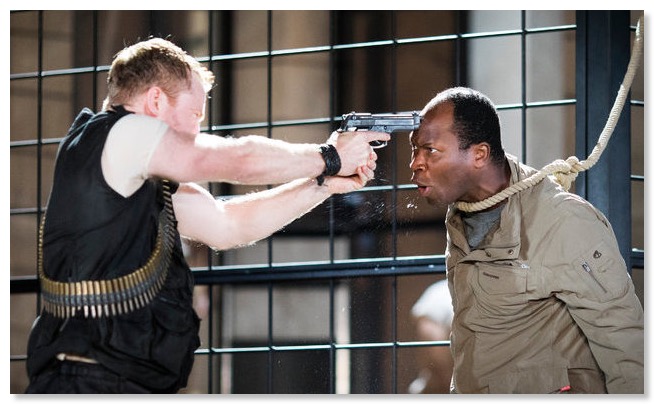
Tom McCall, left, and Stefan Adegbola in Royal Shakespeare Company’s “Titus Andronicus.” “Pretty much every night there’s somebody who faints or is sick,” said Becky Loftus, the R.S.C.’s head of audience insight. “We want to see how the audience reacts physically to the production.” Credit Helen Maybanks/RSC
Does watching a production live, versus on a movie screen, engender a different physiological reaction? The RSC intends to find out. More.
Shakespeare: The Cure for Intellectual Lazyness?
May/01/2017 14:12
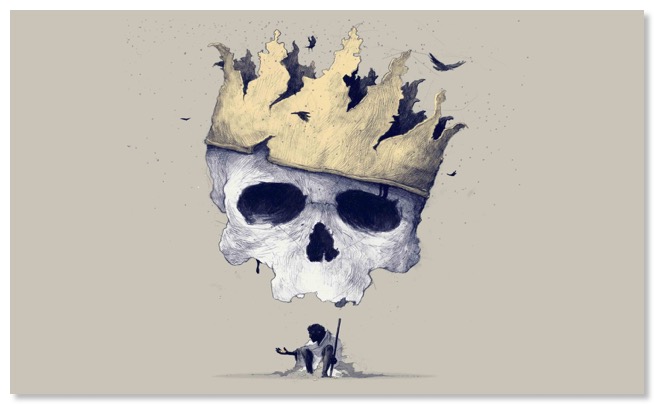
(Simón Prades for The Washington Post/For The Washington Post)
A good (if not slightly harsh) review of modern perspectives on Shakespeare. Are we too timid with our productions? Is "relevance" overblown"? More.
Hamlet Around the Globe
April/23/2017 21:36

Stephen Greenblatt reviews Dominic Dromgool's new book describing taking Hamlet to every country in the world - Hamlet Globe to Globe.
Shakespeare at War
March/13/2017 14:24
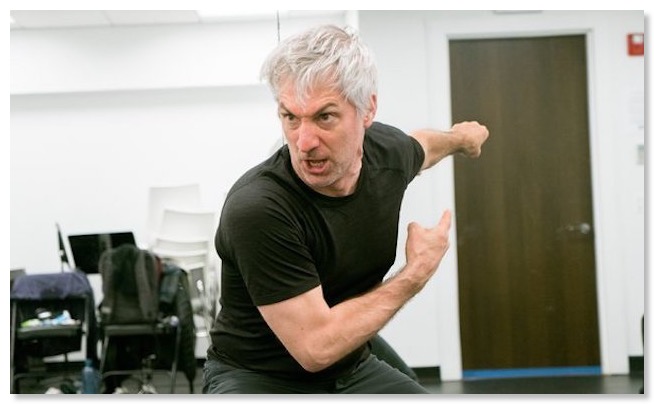
Stephan Wolfert rehearsing his one-man show, “Cry Havoc!”
SARA KRULWICH / THE NEW YORK TIMES
A closer look at how Shakespeare makes sense of war, to veterans and those who have lost friends in war.
A Hofstra Hamlet that "Would Make Shakespeare Proud"
March/08/2017 11:28
Shakespeare in Love, versus Saving Private Ryan
February/27/2017 18:07
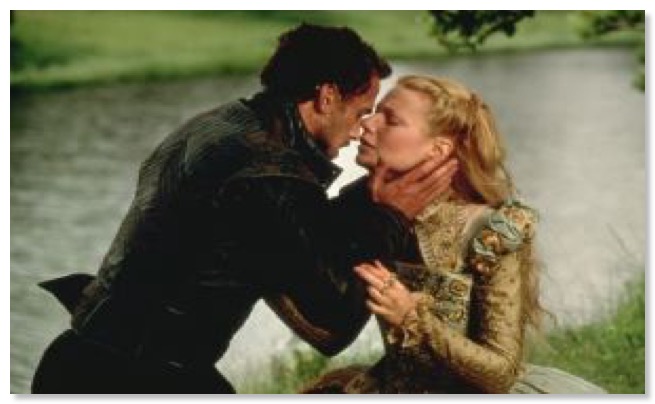
An enjoyable interview with Harvey Weinstein, explaining why Shakespeare in Love, beat out Saving Private Ryan at the Oscars. More.
A Titan Retires
February/15/2017 19:44
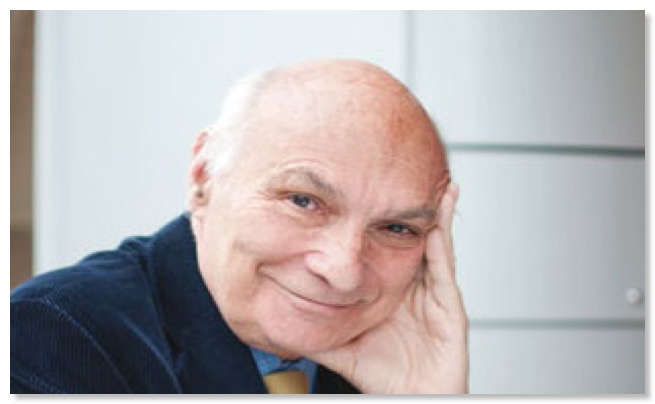
Michael Kahn, a titanic figure in the Shakespeare and theater world, is retiring from his post as artistic director in the Shakespeare Theatre Company, in Washington, D.C. Key quote: "When I’m told I helped make Washington a theater town, that’s the thing I feel the best about,”. More.
Now is the Winter of Our Discontent
February/13/2017 12:38
The Course of Academia Never Did Run Smooth?
February/05/2017 22:24

IUPUI professor Terri Bourus teaches Shakespeare classes. She was one of four general editors of “The New Oxford Shakespeare.” (IBJ photo/Eric Learned)
Troubles assail the inner working of the production of the New Oxford Shakespeare project.
Oh my...
February/03/2017 14:49
It looks as if TNT will be releasing a "biopic" of young William Shakespeare. One hesitates to think what they will do with history…
Pity...
February/01/2017 11:17

The BBC have put up what looks like a fantastic Shakespeare resource, but unfortunately, they have made it accessible only to students in the UK. That's a shame.
For Shakespeare...Haters?
December/23/2016 16:18
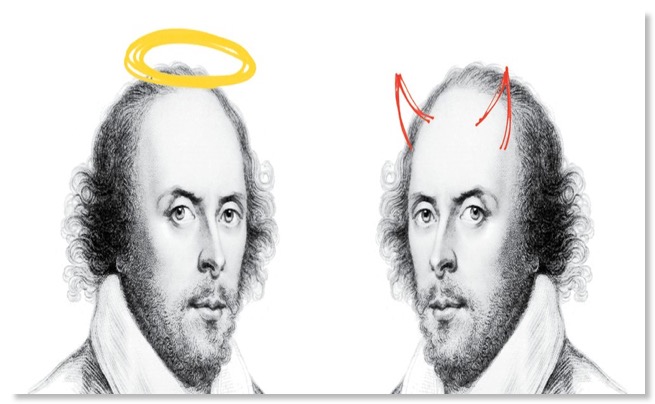
A seasoned (and quite amusing) Pittsburgh theater critic, Ted Hoover, cannot abide Shakespeare and his works. Among his pithier quotes on Studio 360: “If you had a lick of intelligence in your head , this play [Romeo and Juliet] wouldn’t happen. It only happens if you’re stupid.” Possibly... More. Oh, and NPR's Ira Glass also dislikes the bard…
It's Not Just Picard...
December/10/2016 15:45
The Limits of Technology
December/05/2016 15:42
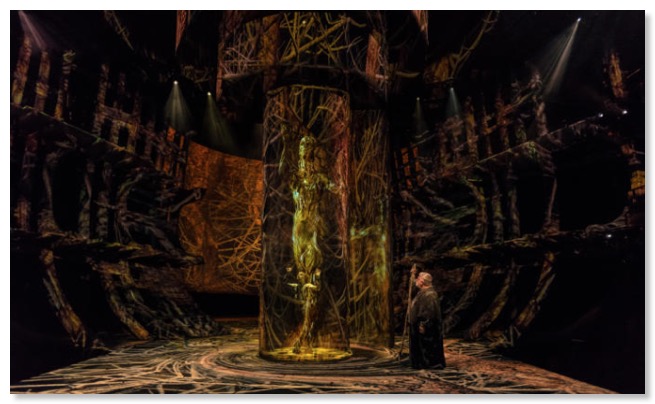
A production photo of the Royal Shakespeare Company’s collaboration with Intel on “The Tempest.”
PHOTOGRAPH BY TOPHER MCGRILLIS / R.S.C.
Daniel Pollack-Pelzner reviews the RSC's production of the Tempest, and examines the limits of real-time computer effects blended with a live performance.
Cartoonish (New Mischief)
December/02/2016 15:40

Starting next year, The RSC will display political cartoons influenced by Shakespeare. The influence runs deep, and long ("...an 1846 cartoon depicting the then prime minister Robert Peel's resignation as the fall of Caesar... [to]... Morten Morland's cartoon of David Cameron as Hamlet gazing at Boris Johnson's skull, from 2016"). More.
It's All Just Vector Space Mathematics to Me (Or Maybe Not...)
December/01/2016 15:39
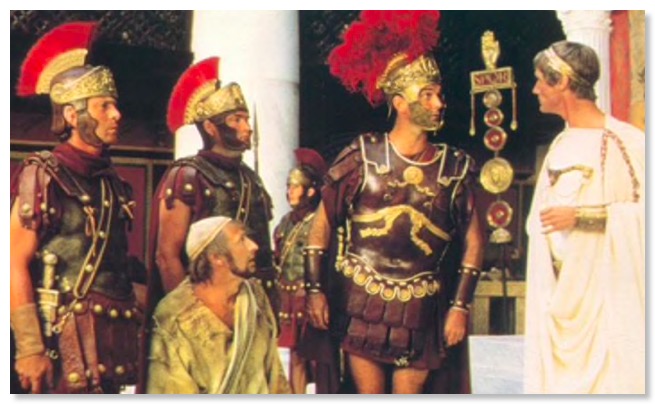
Fascinating (and a little over our head) article in MIT Technology Review about how computers may one day be able to detect sarcasm, and other subtle linguistic tricks. More.
Shakespeare's Own Drama
November/28/2016 15:35
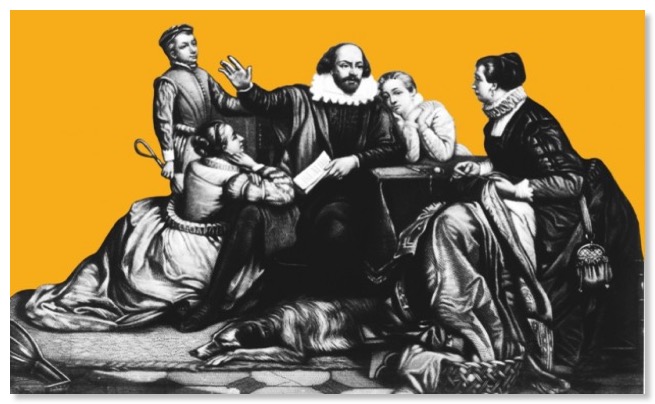
An excellent overview by Stanley Wells of the drama (broadly speaking) that William Shakespeare experienced in his own family affairs. More.
The Stage Design Was Quite Laconic...
November/21/2016 15:31
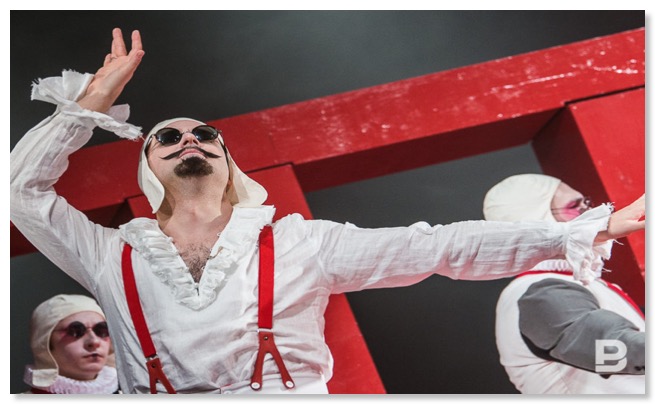
We can't say we fully (or even partially) understand this review of Taming of the Shrew by the Russian Kachalov Theatre, but in the spirit of acknowledging Shakespeare's global reach, we put it forward here. Opaque though the commentary may be, it certainly seems like a visually arresting production. More.
Analogy Lovers, Start Your Engines!
November/20/2016 15:28

The Guardian proposes that Leonard Cohen is to Bob Dylan, as John Donne was to Shakespeare. Discuss...More.
Shakespeare in Mandarin
November/11/2016 15:23

Tremendous article in the Financial Times detailing the possibilities and pitfalls in translating Shakespeare's works into Mandarin. More.
Comparing Hamilton to Henry IV, part 1.
November/09/2016 15:19
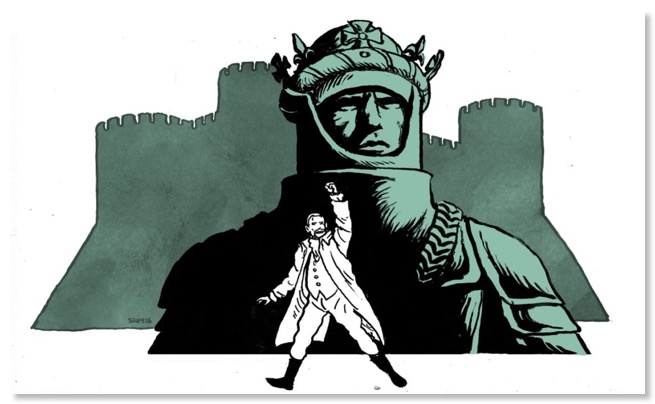
Isaac Butler, compares Lin-Manuel Miranda's Hamilton, with Shakespeare's Henry IV, part 1 -- (proper title: 1 Henry IV) in this complex but well reasoned piece for Slate. More.
What do the words "magazine", "coffee", and "alcohol" have in common?
November/07/2016 15:12

This delightful article by Madeline White in the Brisbane Times provides the answer: provenance. These three words are very much part of today's English lexicon, but all three originated from the Arabic language. The point? That historically, the English language has proved very adept at incorporating elements from other languages into the vernacular - with Shakespeare in the lead as an arch-shaper of that language, and emoji as the latest digital import into English. Ms. White makes the case better than we can! More.
Calling Dr. Spooner...
November/06/2016 15:10
Westworld and Shakespeare
November/04/2016 13:11

Michael Crichton leaned heavily on Shakespeare's words when writing Westworld. What does it all mean? More.
Tina Packer on Shakespeare and the Election Cycle
November/03/2016 19:54
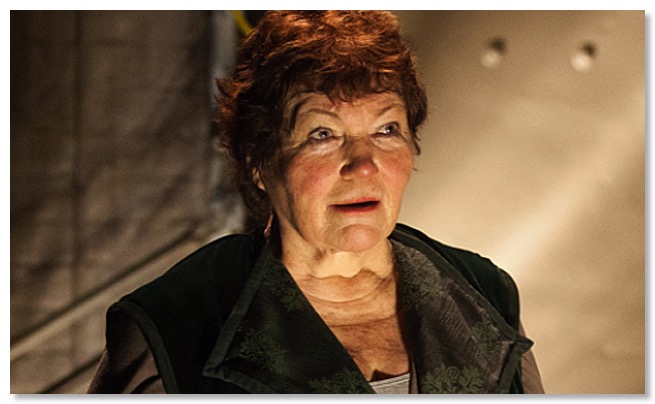
Great radio piece on WBUR's Radio Boston (and the as-always excellent Meghna Chakrabarti) with Tina Packer addressing our current election discussion through Shakespeare's eyes. More.
Glenda Will Howl
November/02/2016 16:52
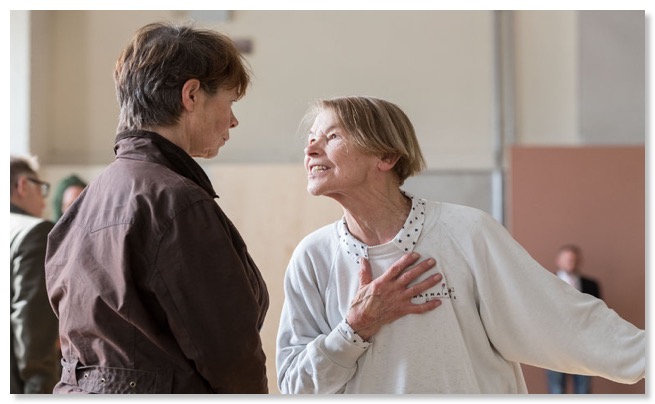
Celia Imrie and Glenda Jackson in a rehearsal of “King Lear” at the Old Vic. Credit Manuel Harlan.
After a quarter century absence, two time Oscar winner and former English member of parliament Glenda Jackson will return to the stage this Friday, to play one of the most challenging of Shakespeare's roles - King Lear. More.
Luhrmann's Romeo + Juliet At 20
November/01/2016 16:47
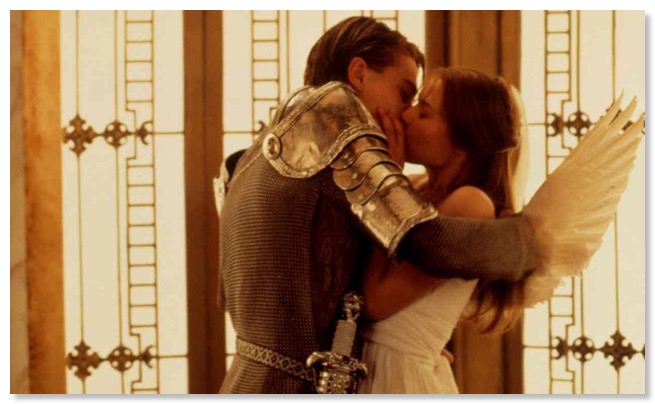
Leonard DiCaprio and Claire Danes in Baz Luhrmann's Romeo + Juliet
The Guardian re-reviews Baz Luhrmann's Romeo + Juliet on its 20th anniversary. More.
We Almost Lost 16 Plays...
November/01/2016 16:46
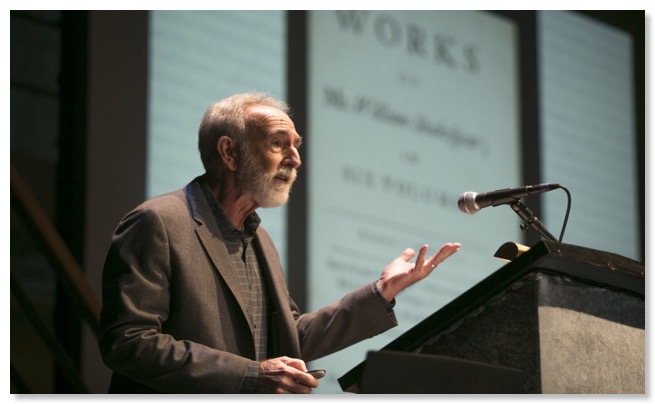
George M. Bodman Professor of English David Kastan speaks at Drew
Yale scholar David Kastan speaks at Drew University, and explains how the first folio saved at least 16 of Shakespeare's plays from obscurity. A close call. More.
Hamlet's Father...and Halloween
November/01/2016 16:45

John Cogan University Professor of the Humanities Stephen Greenblatt.
Leading Harvard Shakespeare Scholar Stephen Greenblatt launches a new MOOC today, entitled "Hamlet's Ghost". More.
Hag-Seed; Margaret Atwood Retells The Tempest
October/29/2016 16:43
A Heartbeat Away: Shakespeare and Autism
October/29/2016 16:31
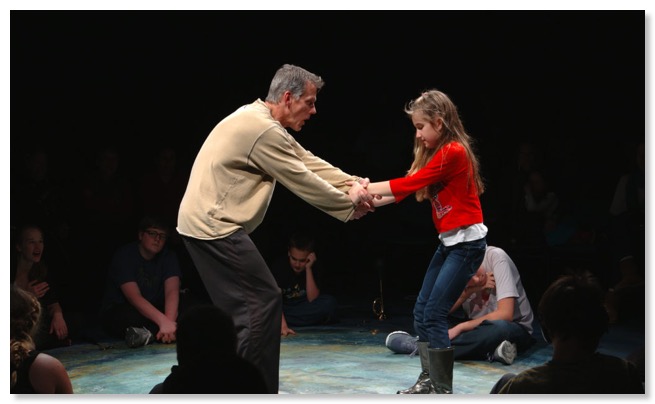
Shakespeare takes center stage in a novel intervention for children with autism. A new study from the Nisonger Center at The Ohio State University Wexner Medical Center shows children with autism had improved communication and language skills after ten weeks of Shakespeare classes.
A remarkable article on how Shakespeare's The Tempest is being used to help students with autism spectrum disorder. More.
Shakespeare and Medicine
October/28/2016 16:41
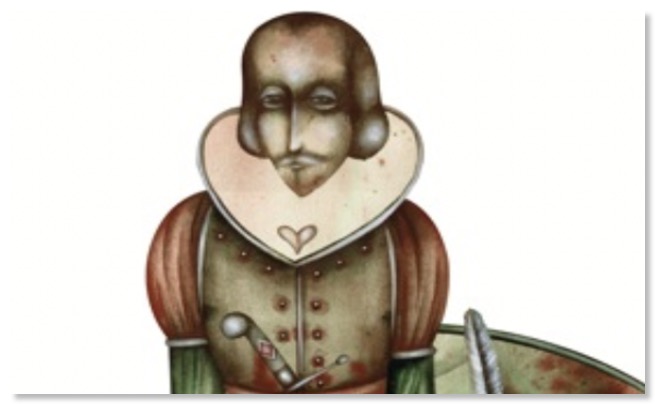
A great article that looks at Shakespeare's writing through the prism of medicine - what he (and his contemporaries) knew about medical conditions, and where that knowledge came from. More.
Shakespeare's Co-Writers
October/27/2016 16:30

Shakespeare did not work alone, but was profoundly influenced by those around him -- actors, directors, writers and other theater professionals. This delightful infographic from the Oxford University Press neatly captures the vibrant artistic environment in which he worked.
Henry VI, Part 1 By W. Shakespeare... and Christopher Marlowe.
October/25/2016 16:34
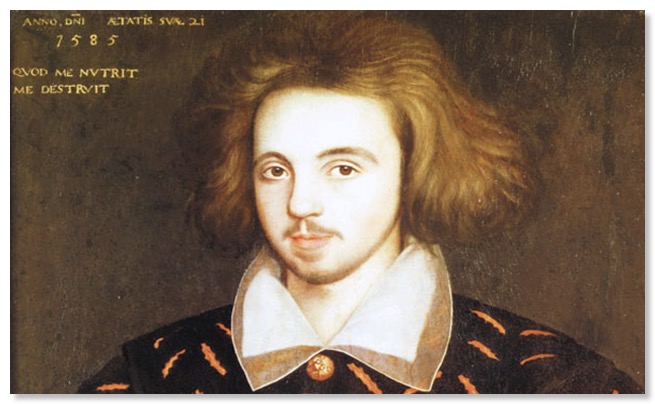
From Wikipedia: A portrait, supposedly of Christopher Marlowe. There is in fact no evidence that the anonymous sitter is Marlowe, but the clues do point in that direction. Marlowe was 21 years old in 1585, when the painting was made. He was also the only 21-year old student at Corpus Christi, where the painting was later found.
New scholarship from the Oxford University Press suggests that Shakespeare had help from Christopher Marlowe when writing Henry VI, parts 1, 2 and 3. Corpus analysis helps solve the puzzle! More.
Shakespeare Embodied
October/21/2016 16:32
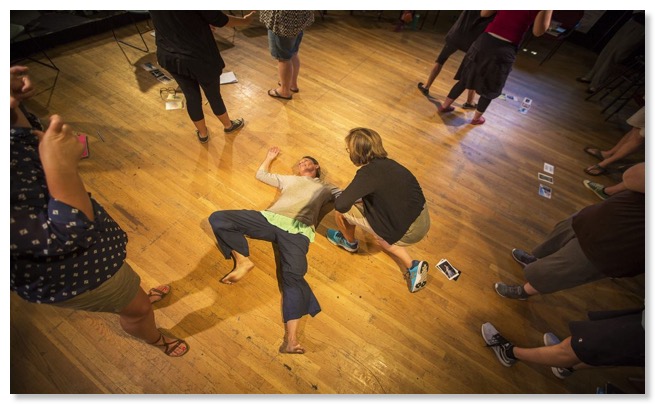
“We say, ‘When I say Shakespeare, you say …?' And we turn it into a kind of a call-and-response thing, and we hear things like ‘Dead!’ ‘White guy!' You know. ‘Who cares!’ ”
A great piece from WBUR on Actor's Shakespeare Project, which works with teachers to bring Shakespeare's plays to life. More.
Choices, Choices...
October/16/2016 16:28
Wondering whi to see, and in what order? Wonder no longer, as Good Tickle Brain gives you a easy to use (and amusing) flowchart on how to choose. Enjoy!
A Child Star - But Which One?
September/15/2016 11:36
Long did, but famous in his time, he was more known for his vaudeville and broadway performances. As a not very helpful hint - he was born Joseph Yule, Jr.
Rallying the Troops
September/09/2016 16:20
Benedict Cumberbatch as Richard III and Luke Treadaway as Richmond prepare for battle. The power of oratory.

